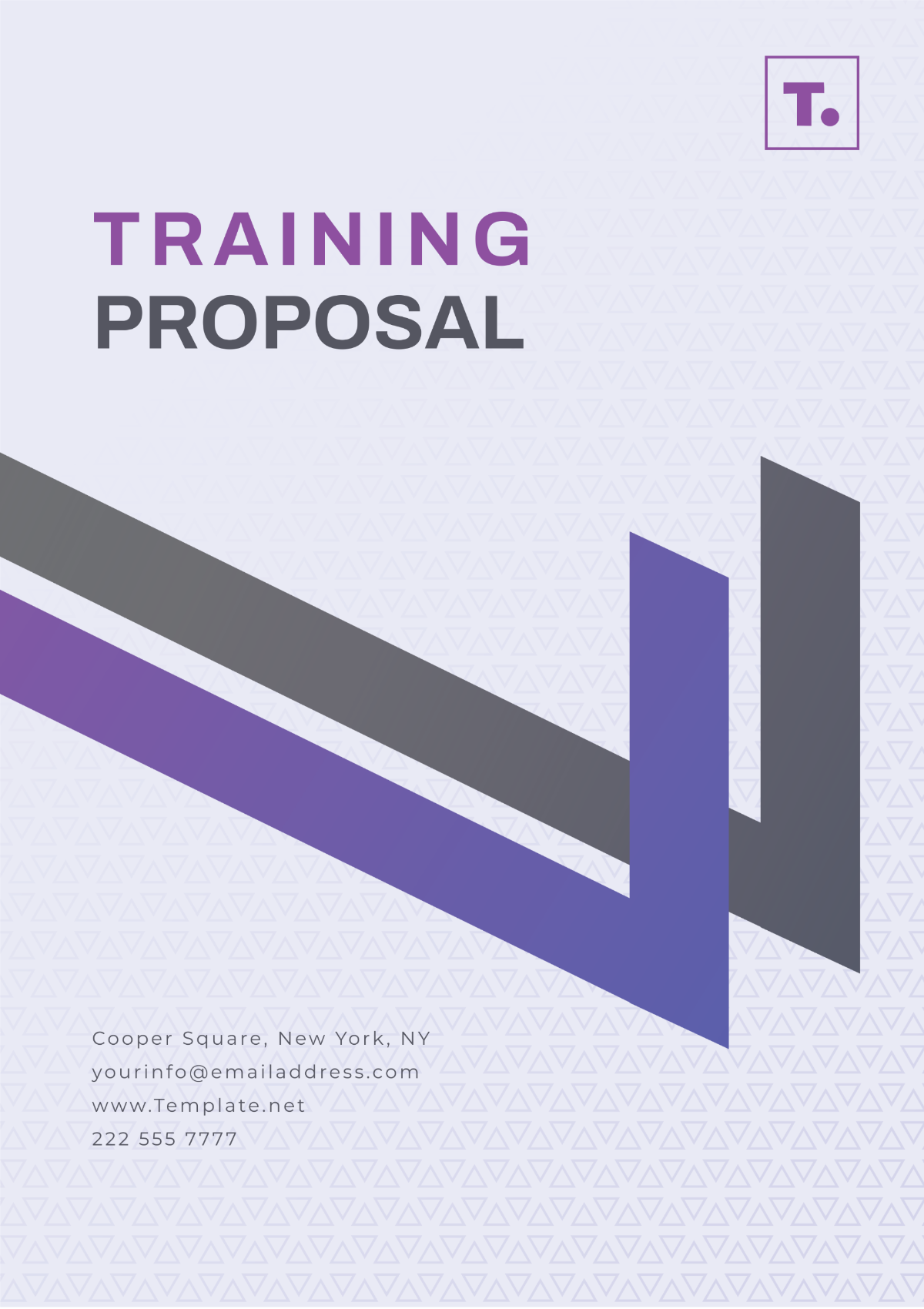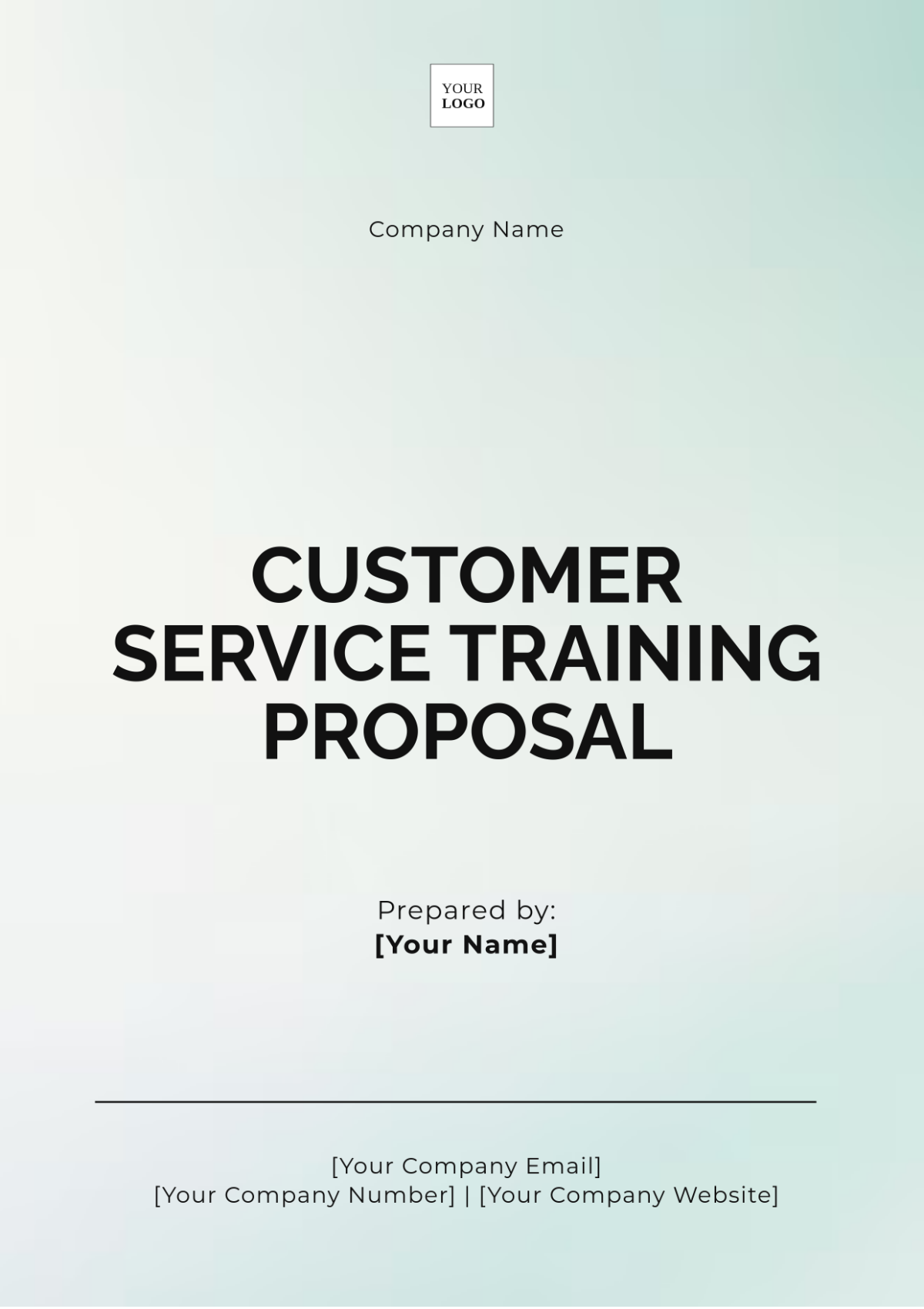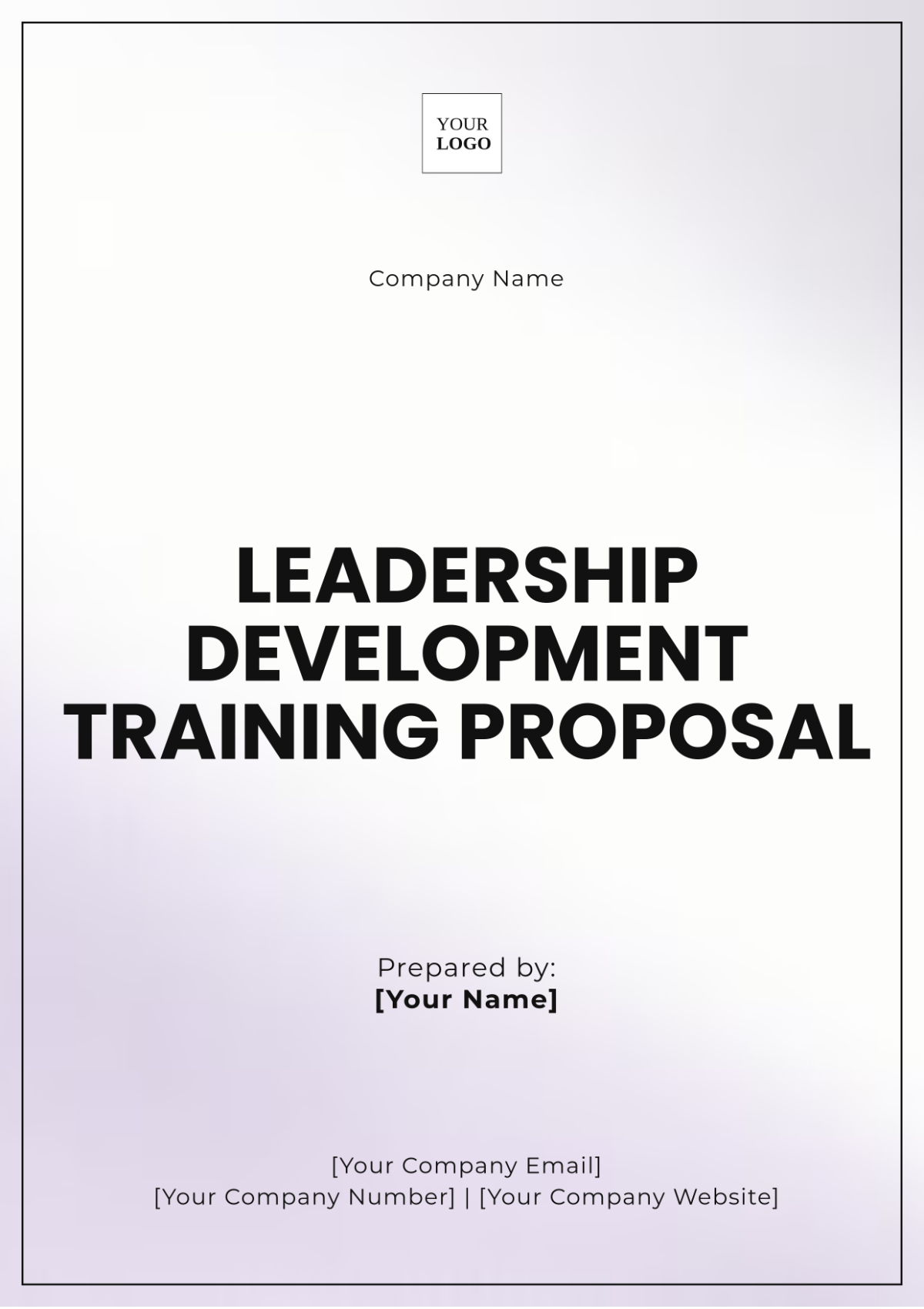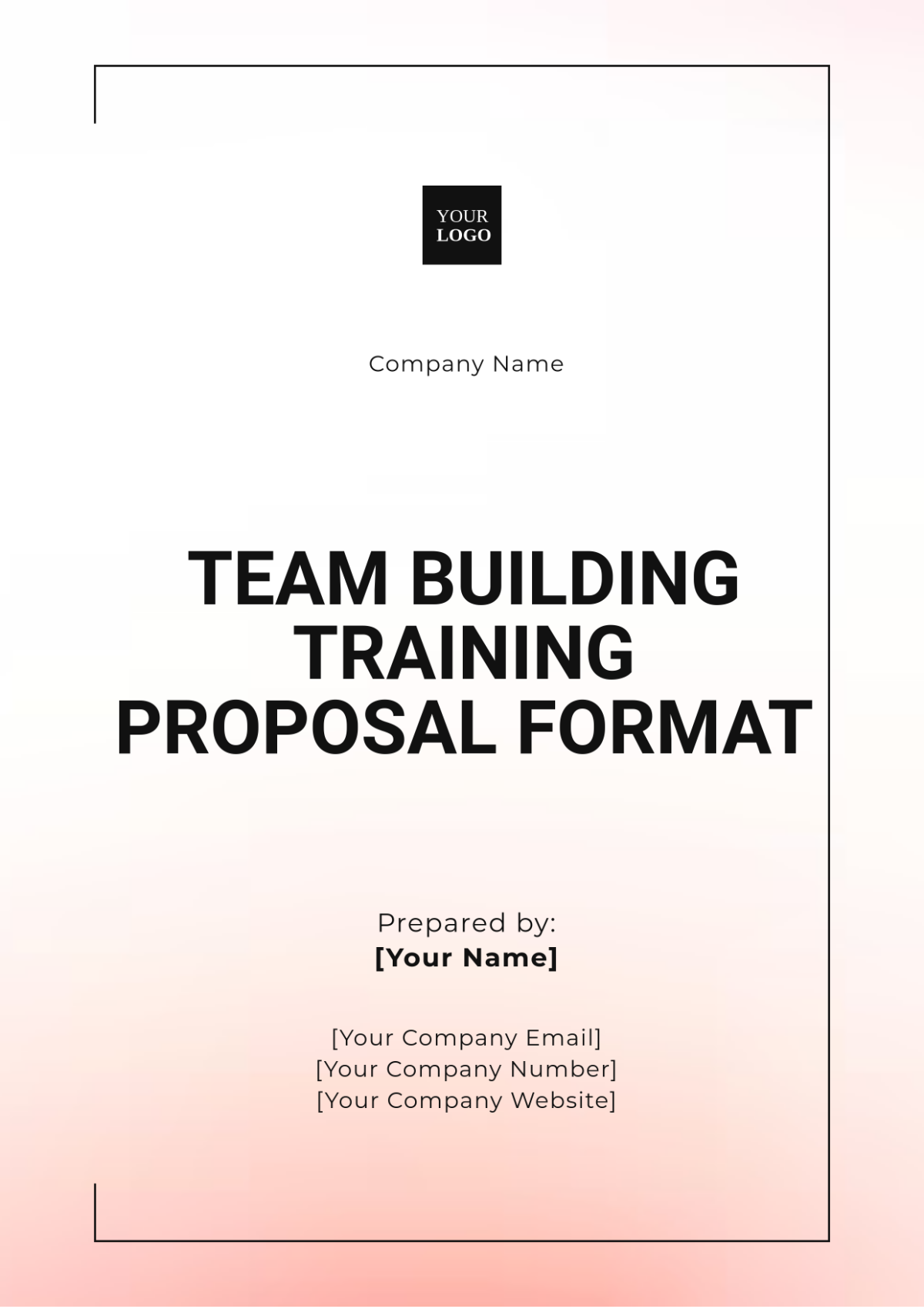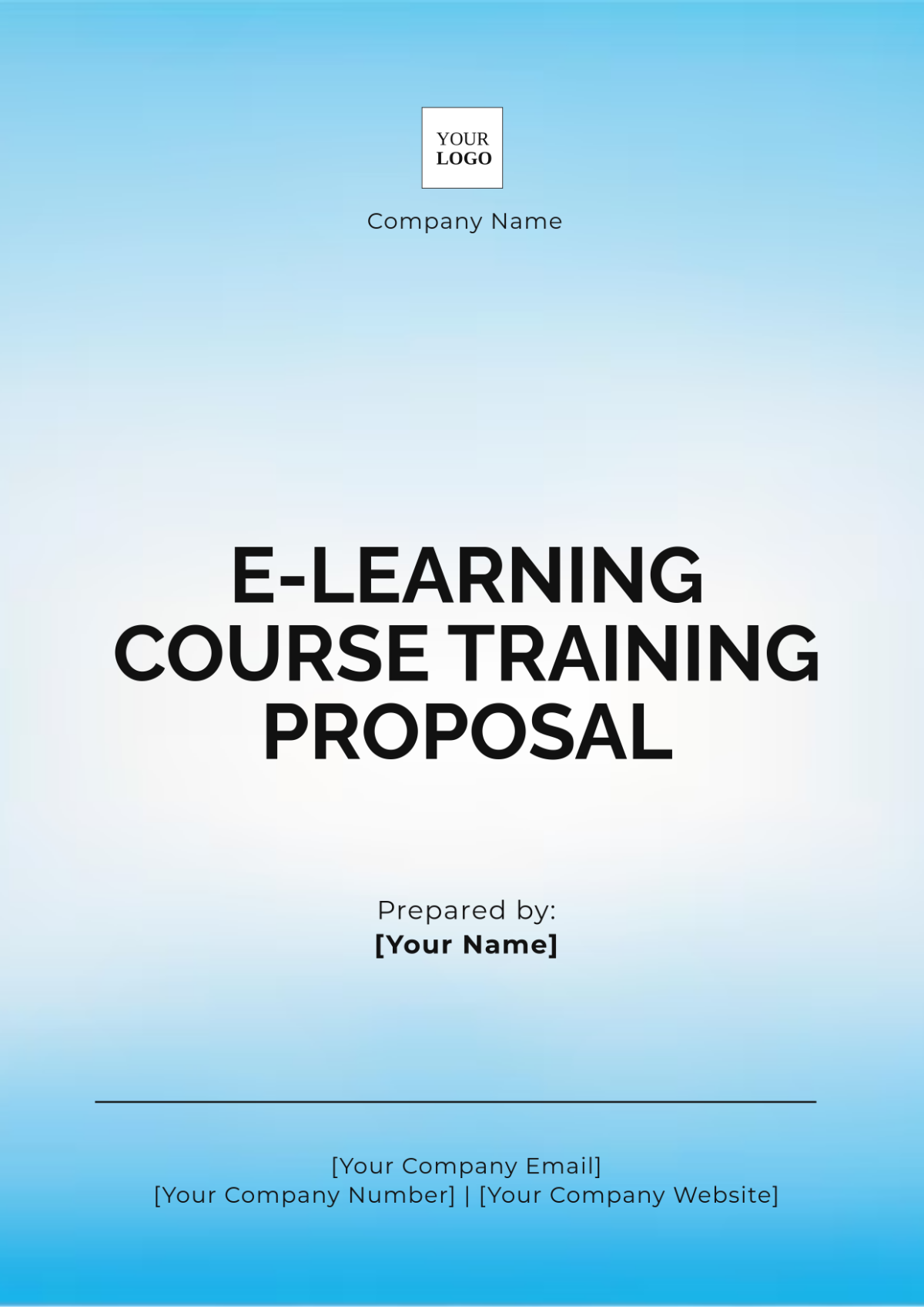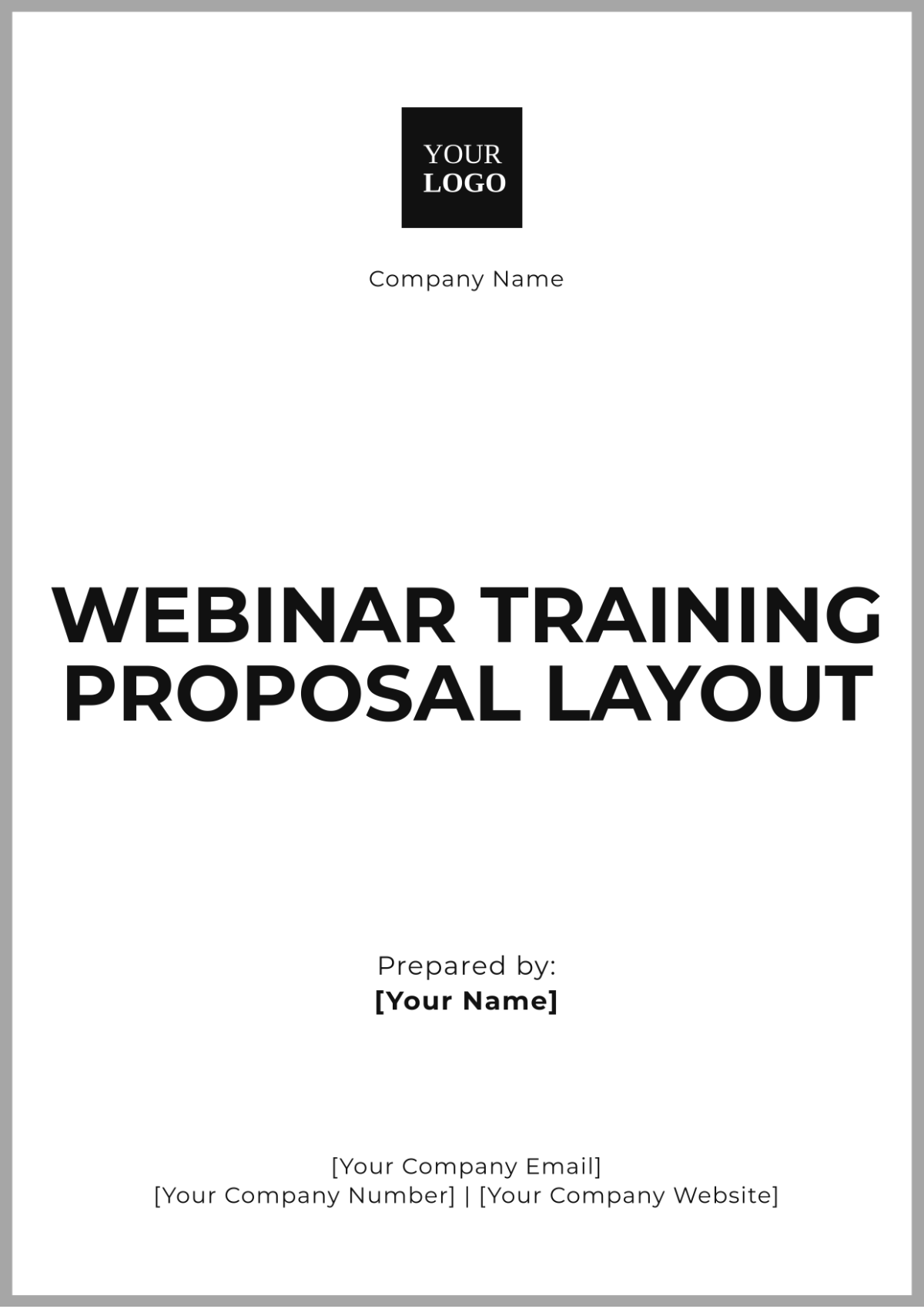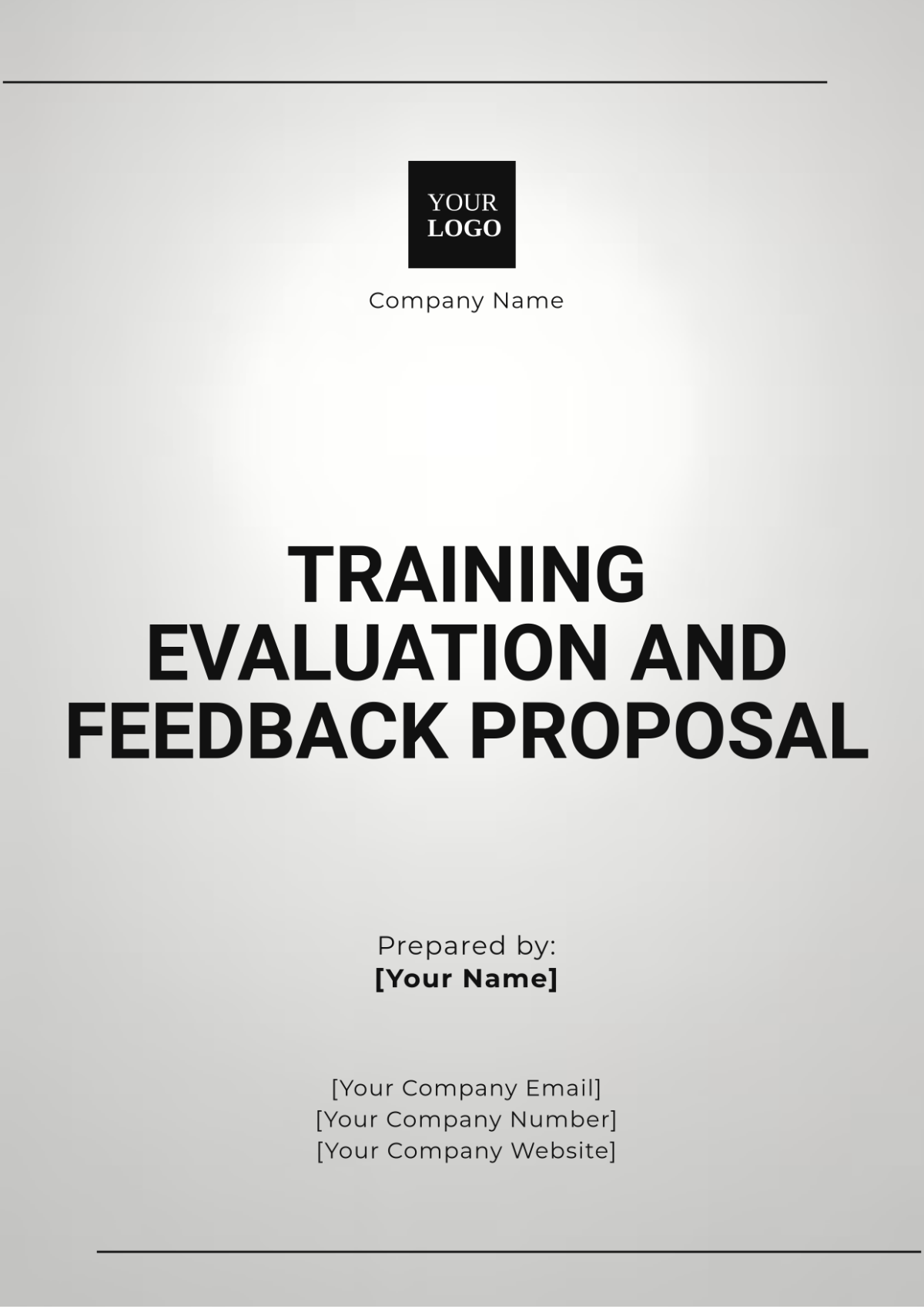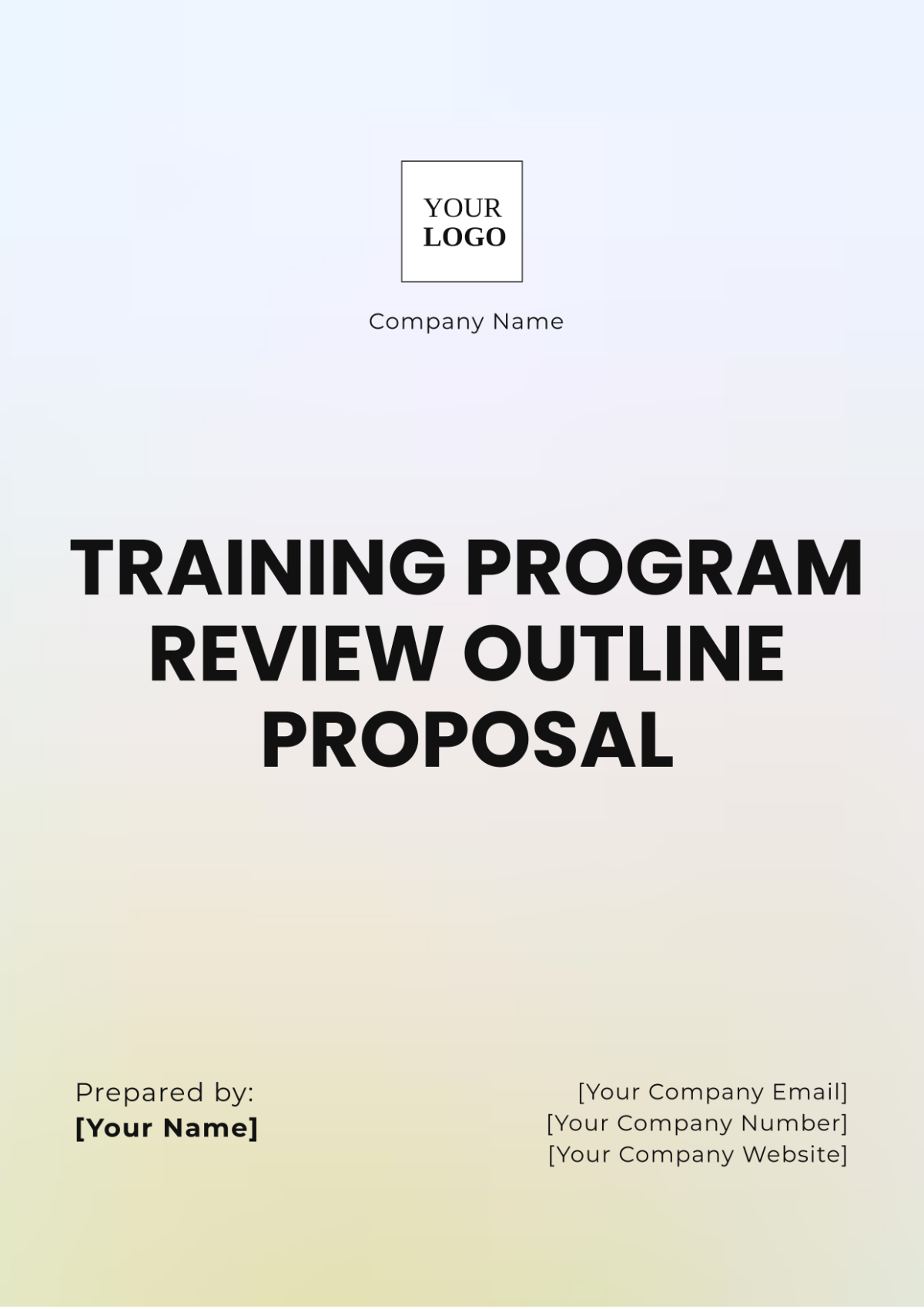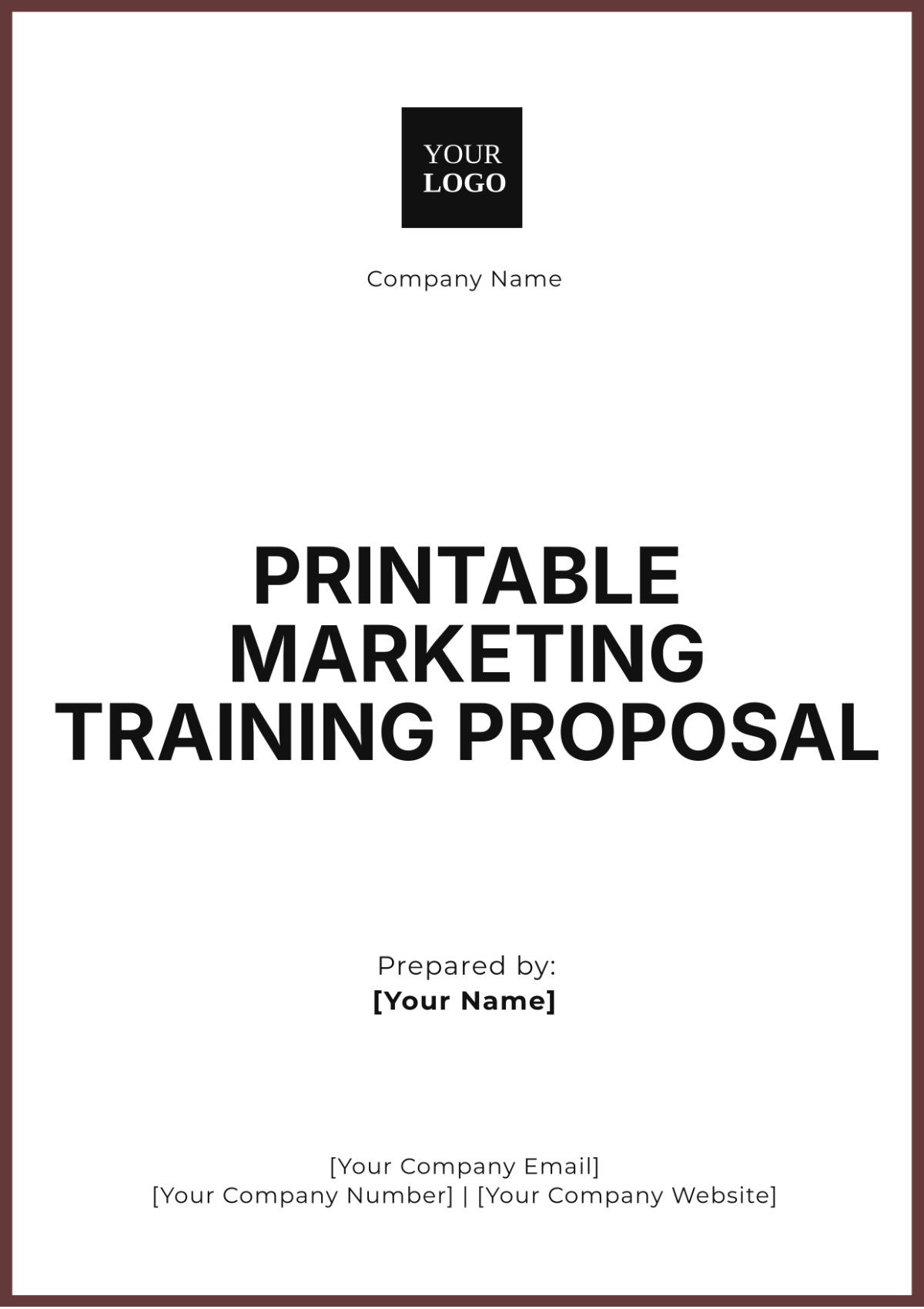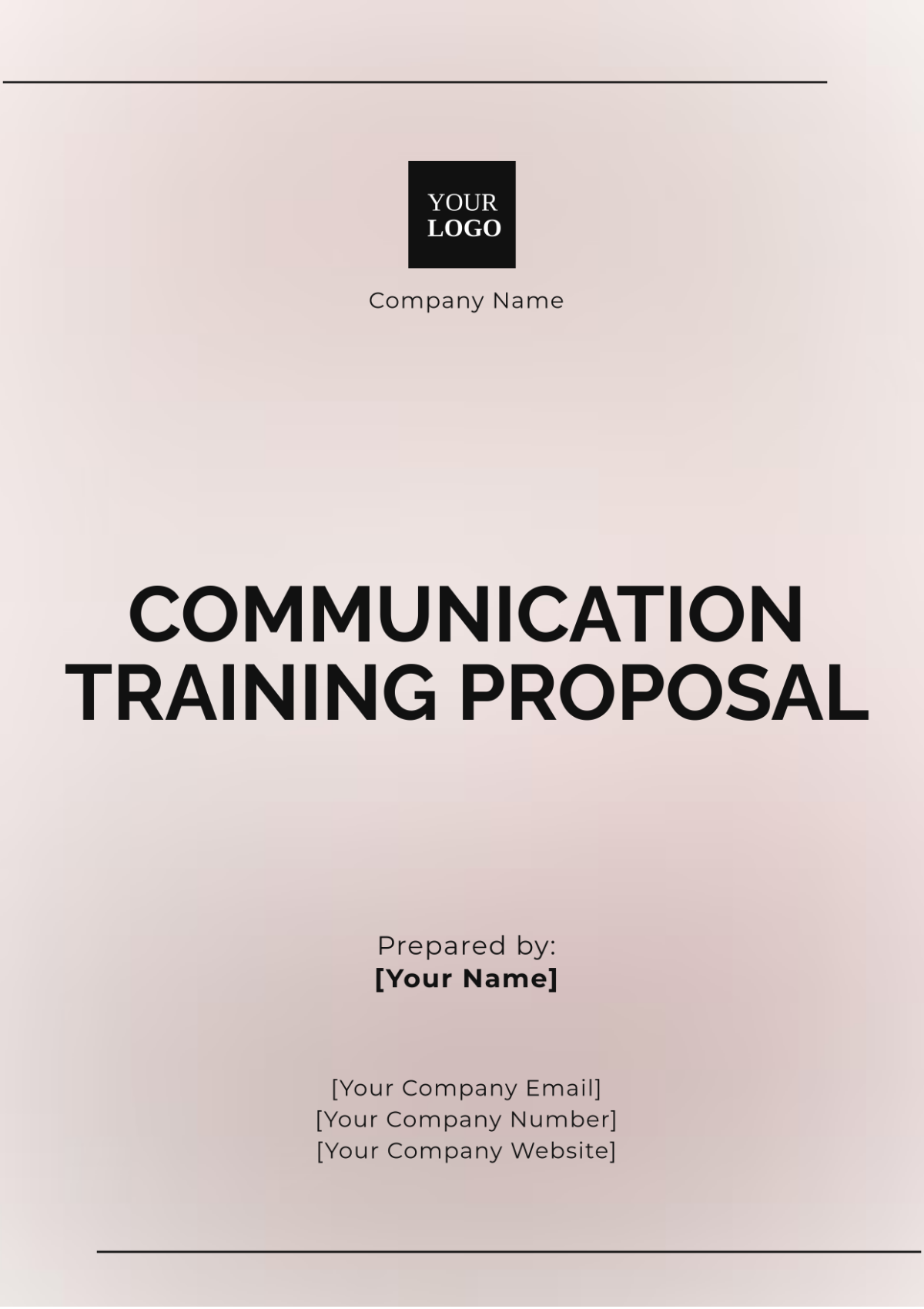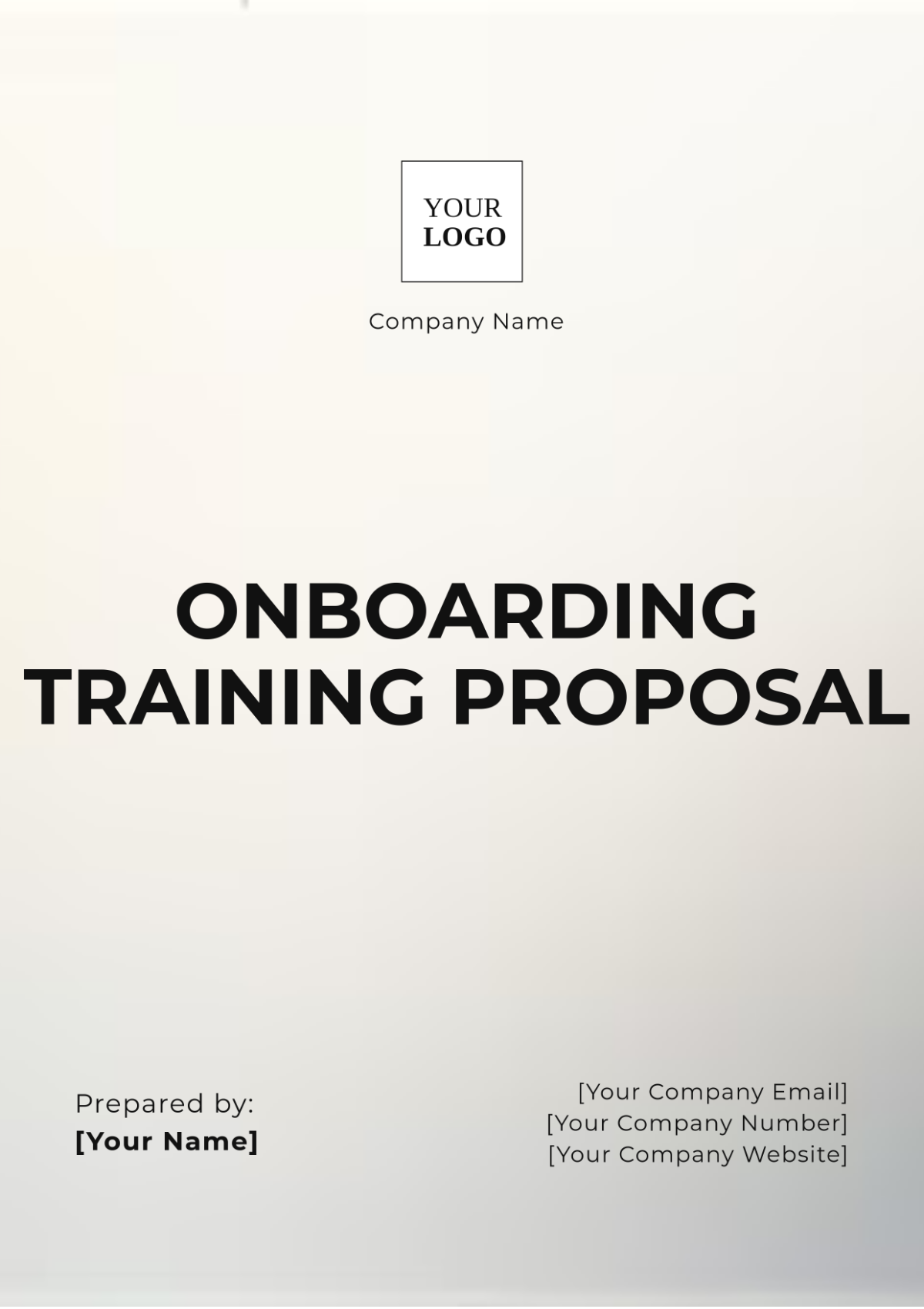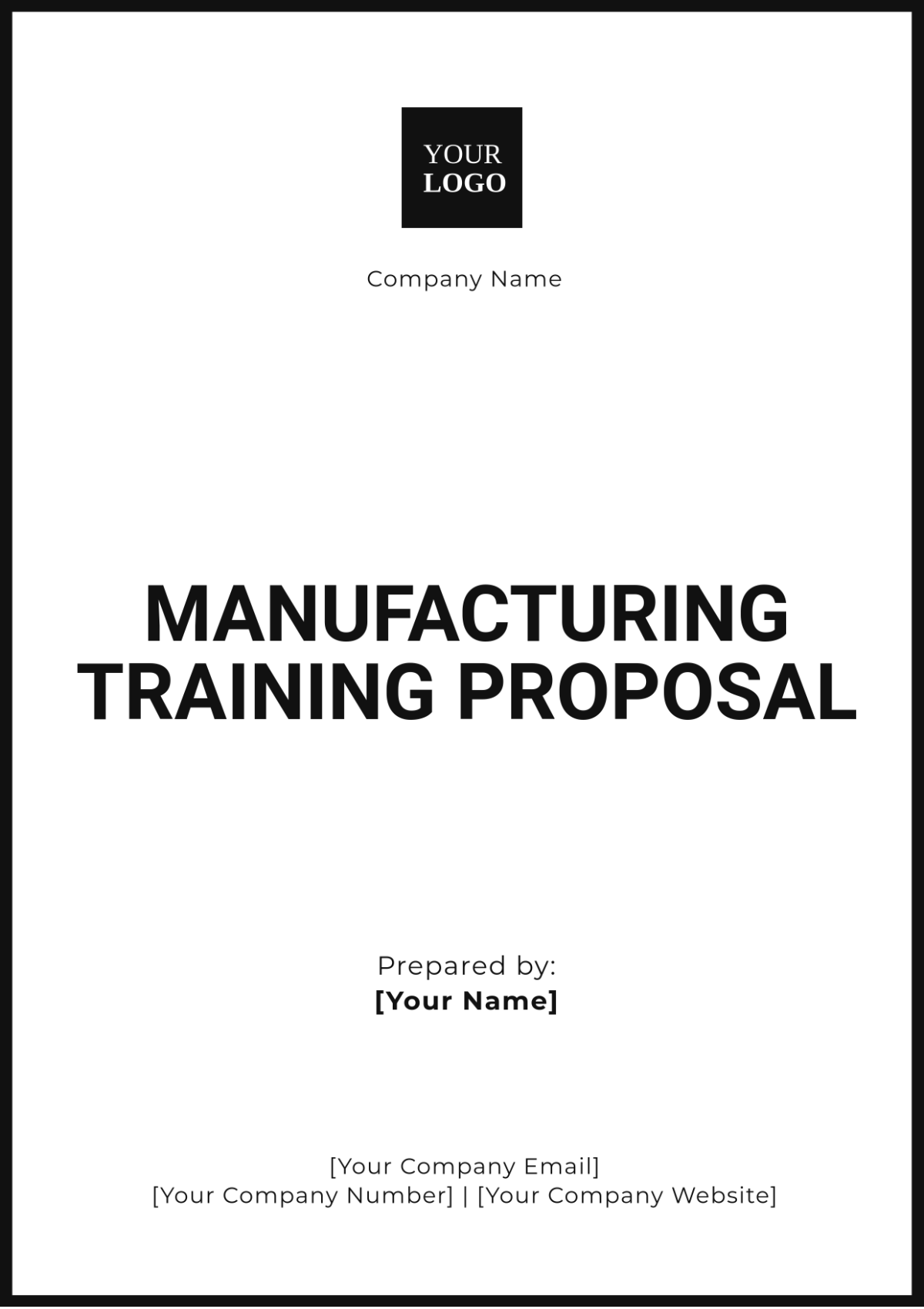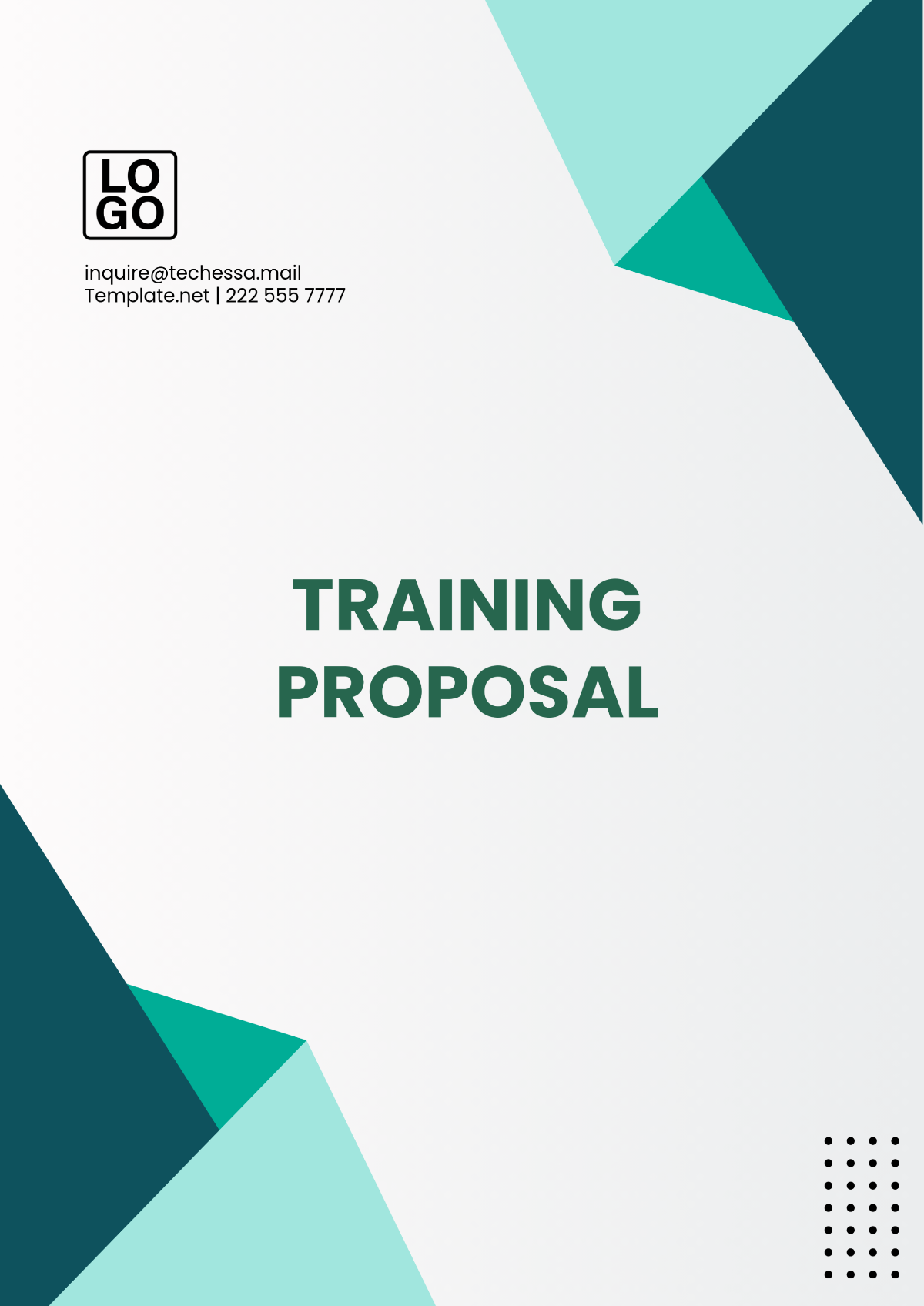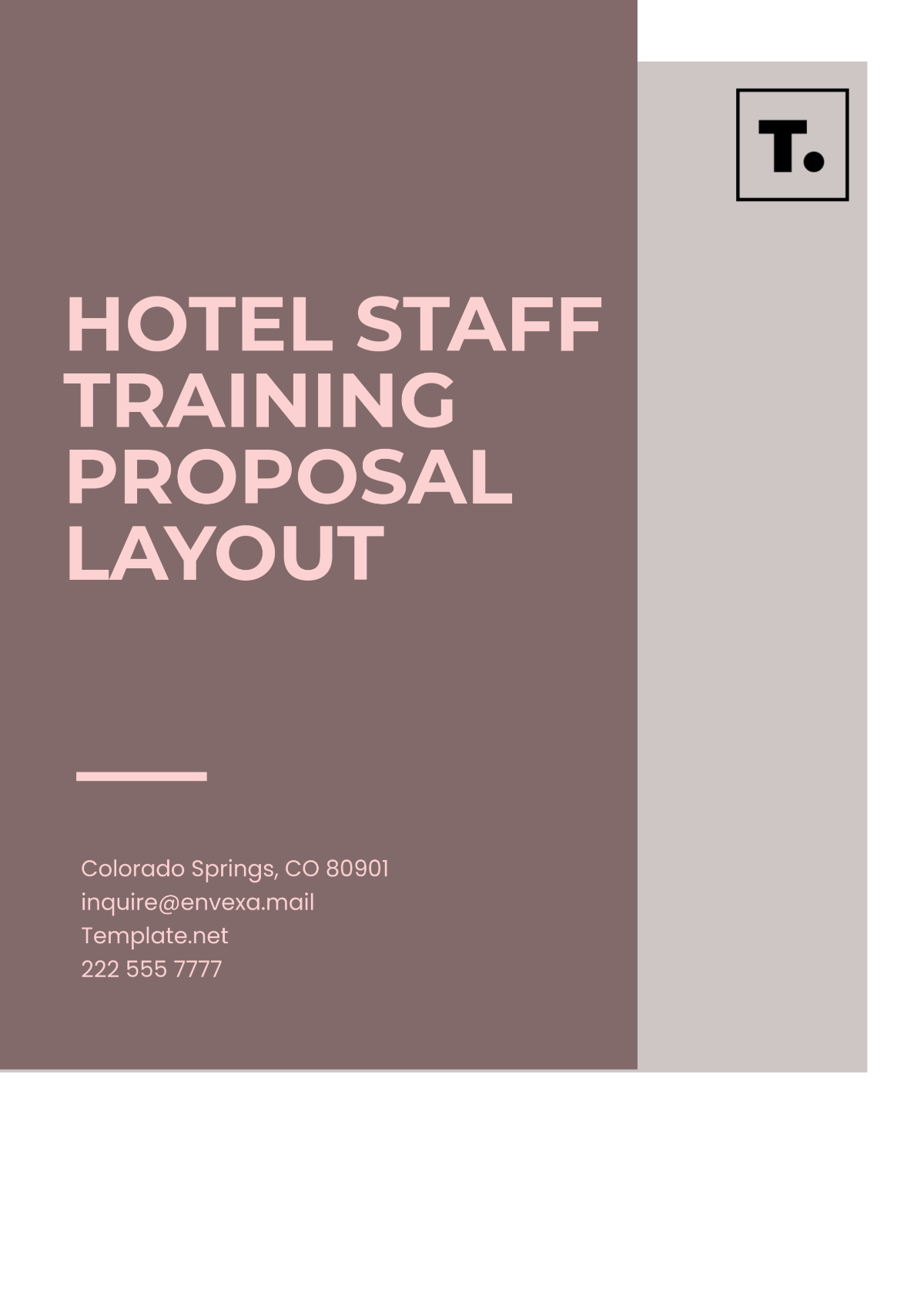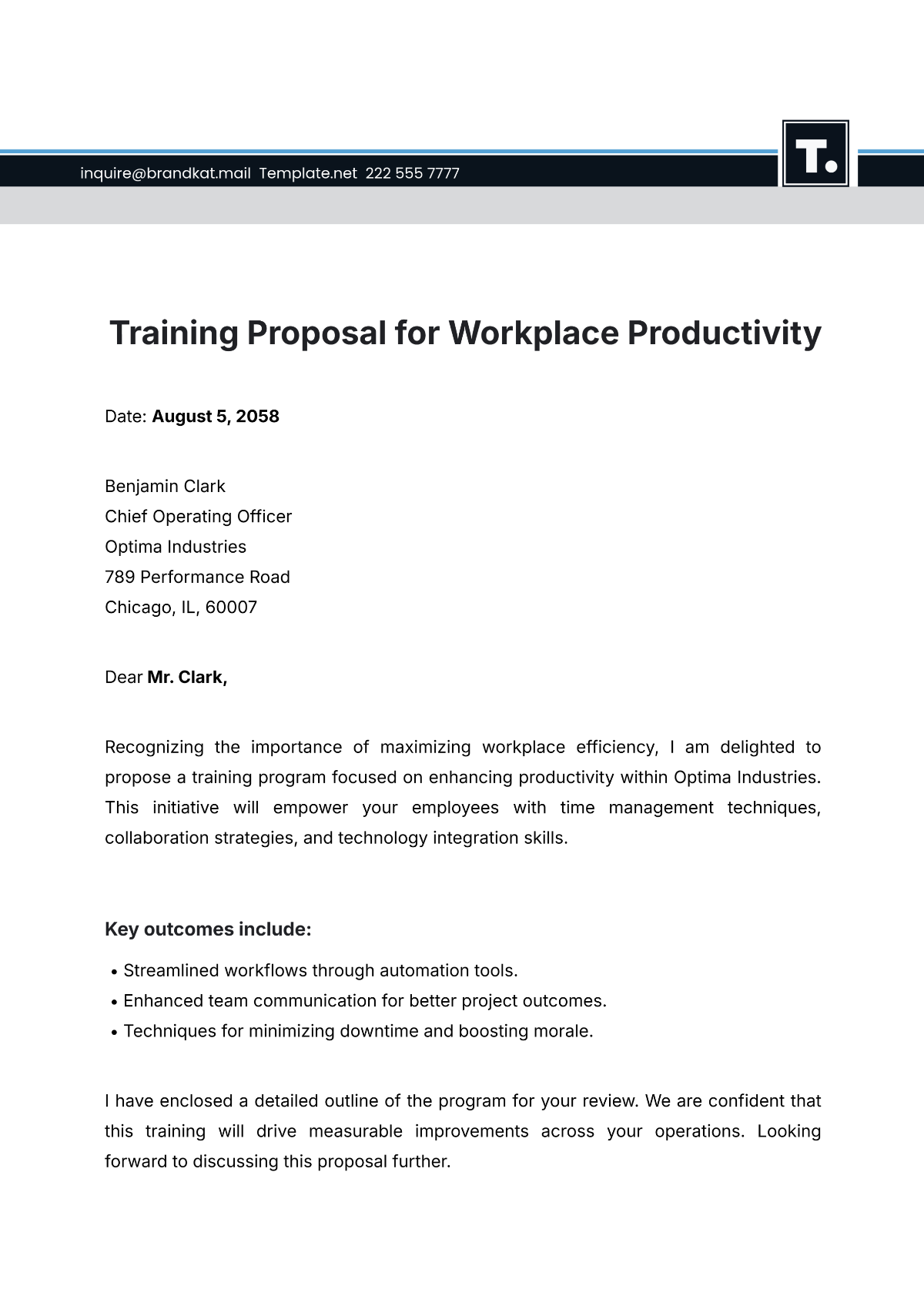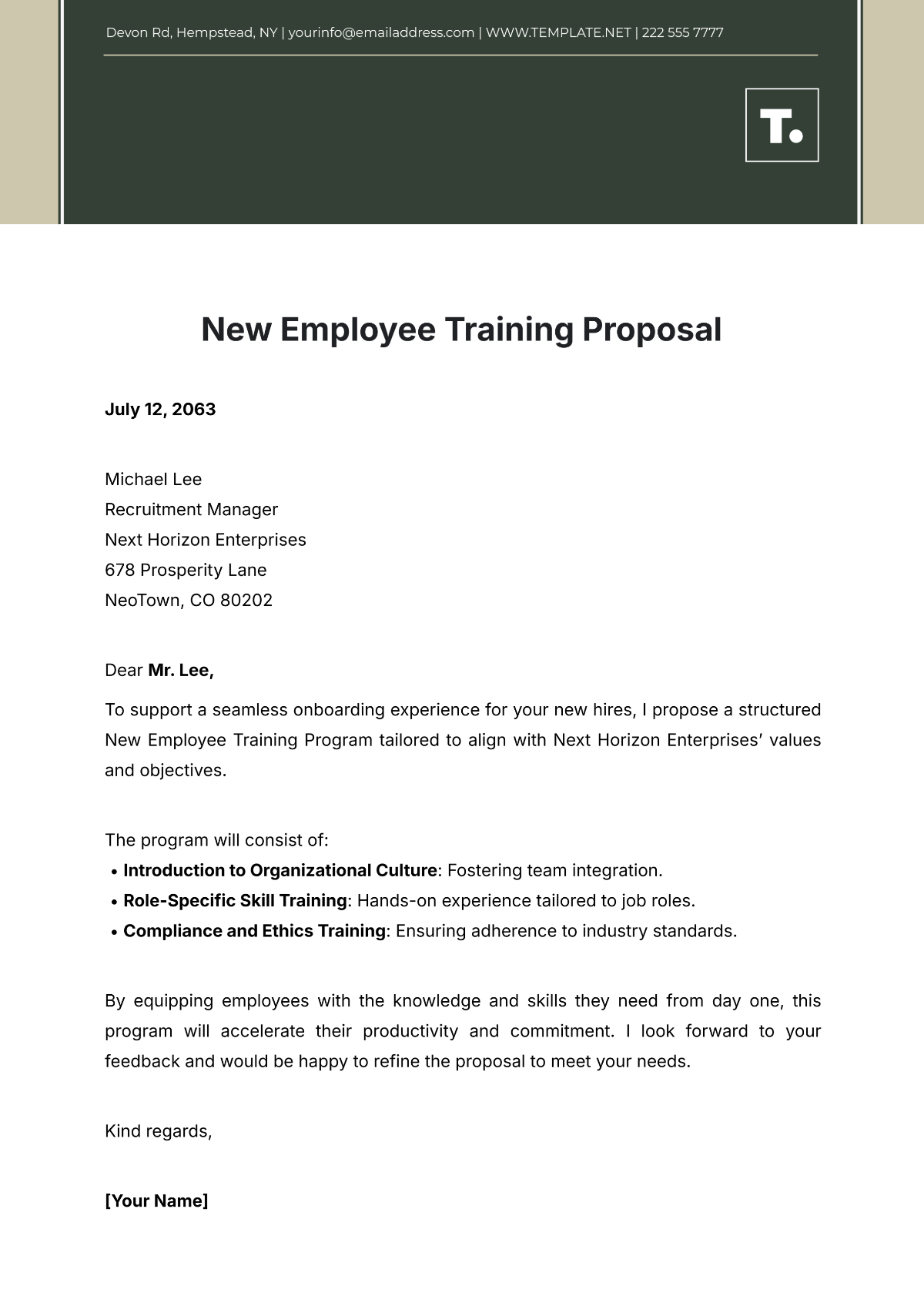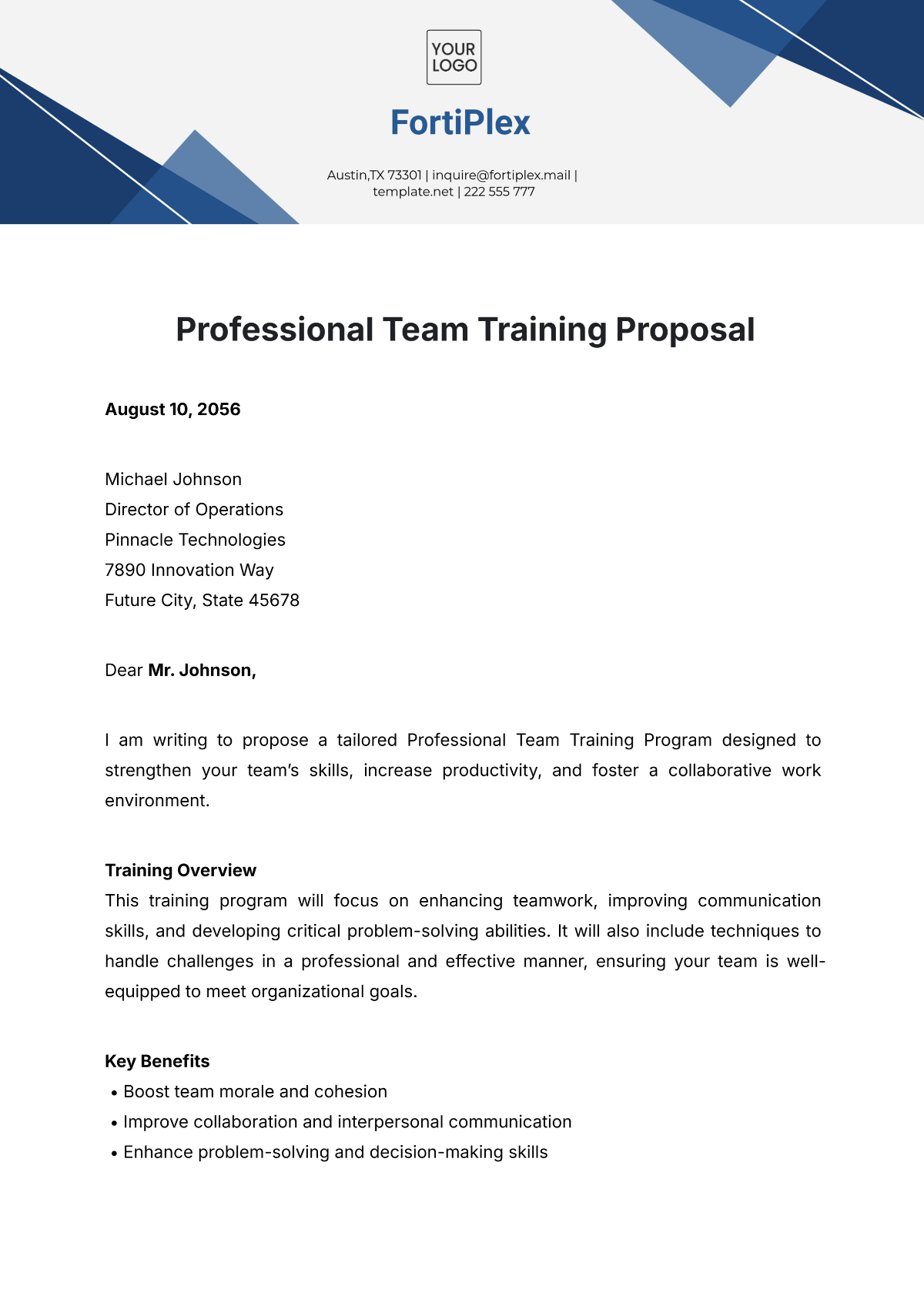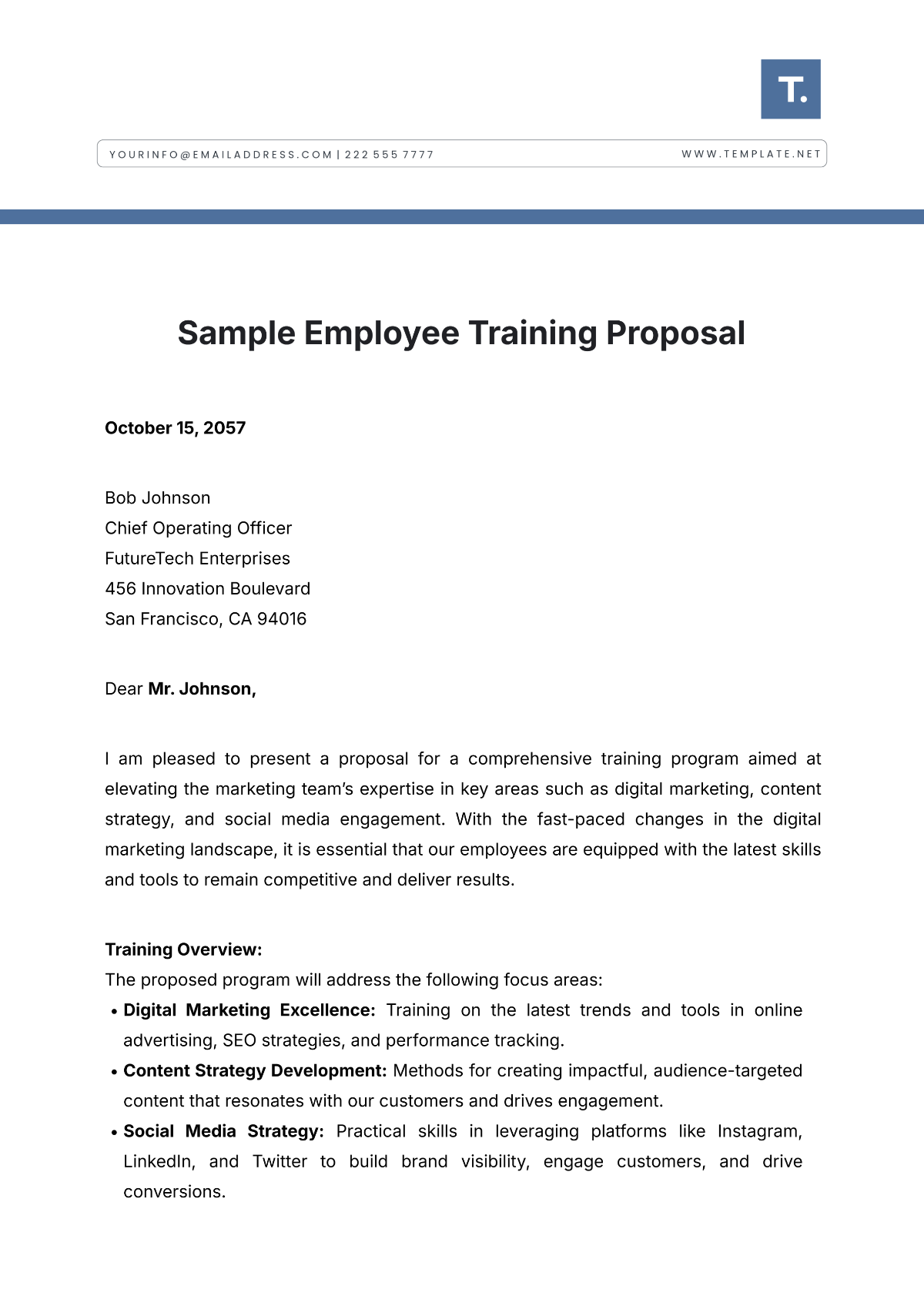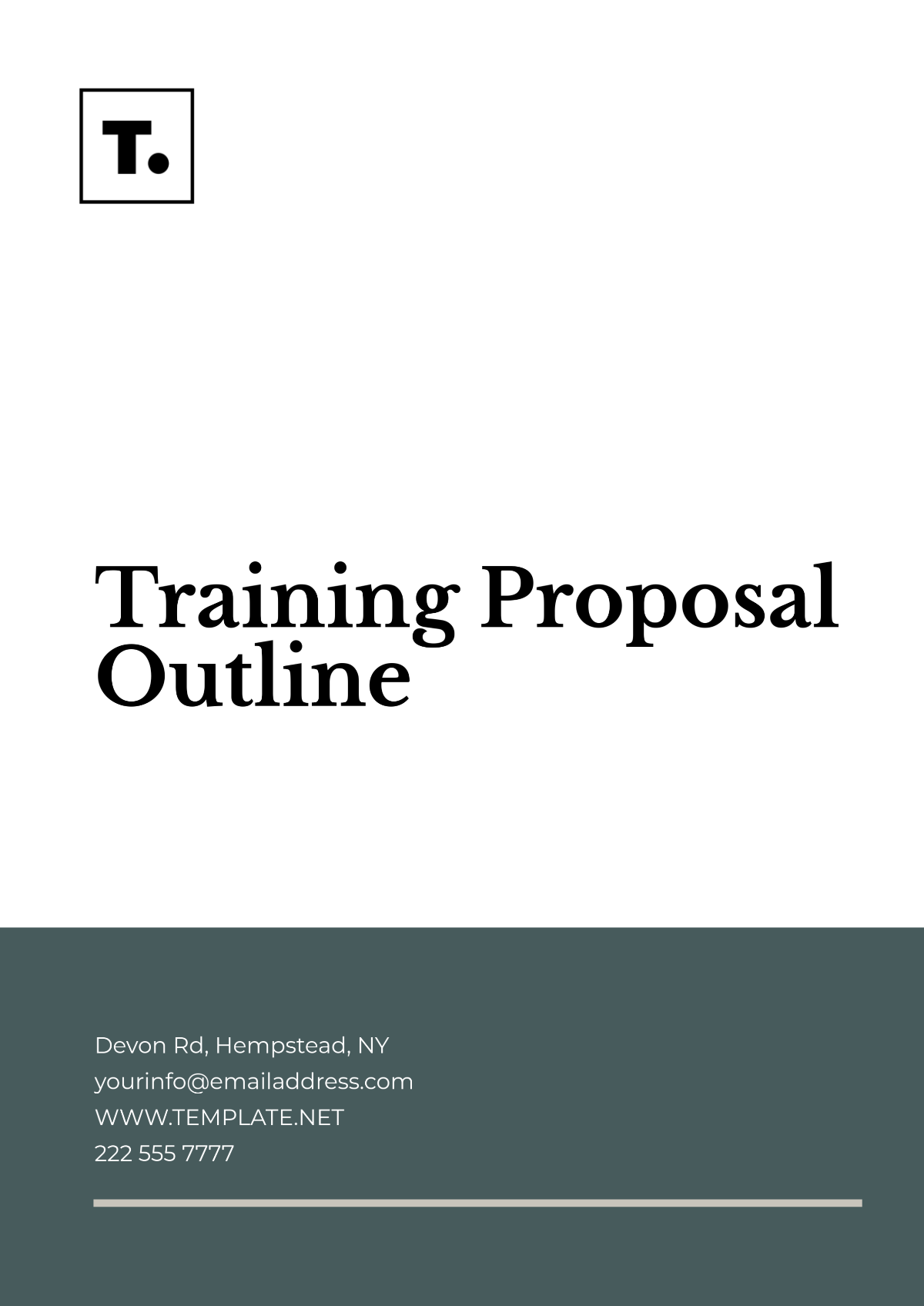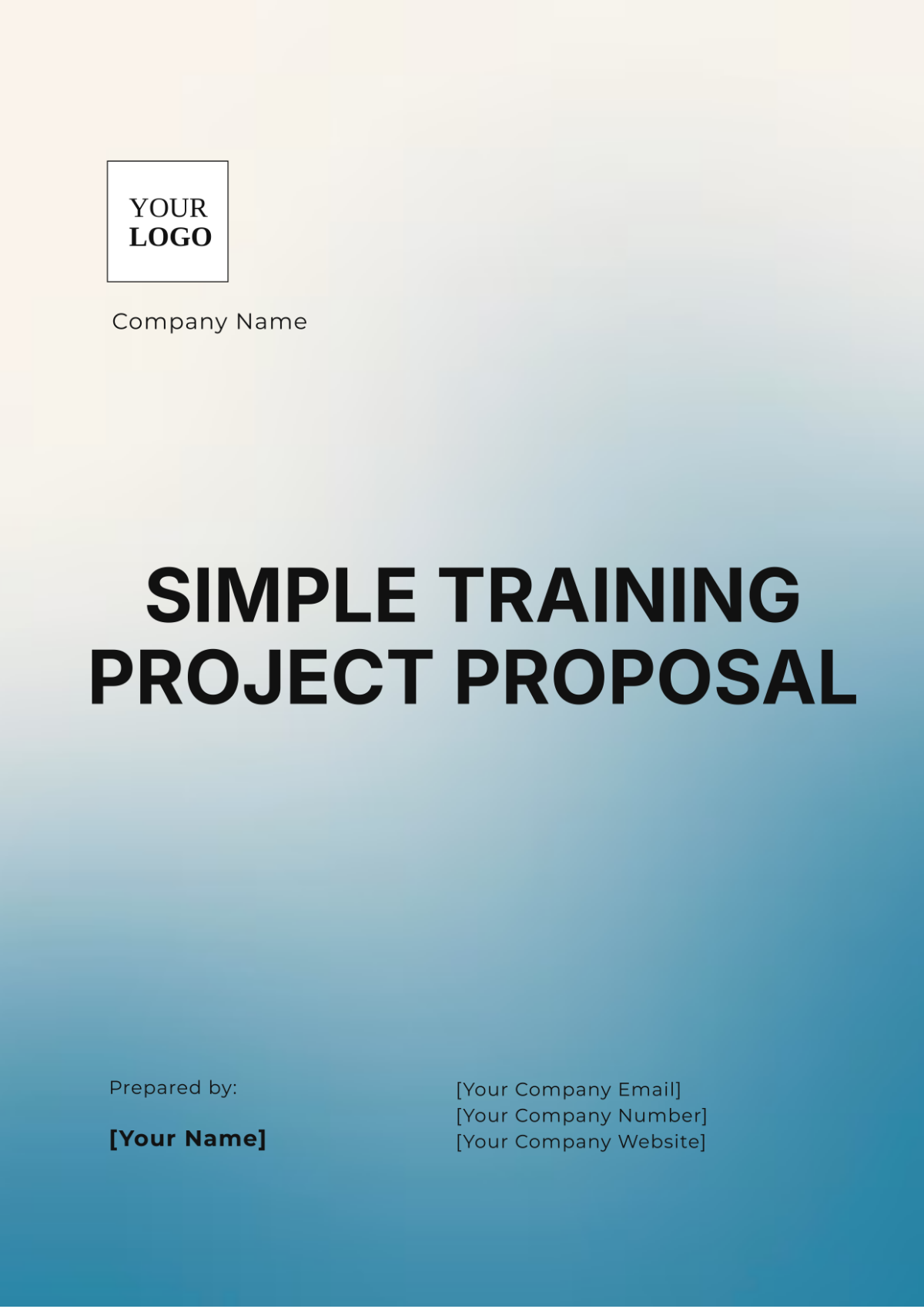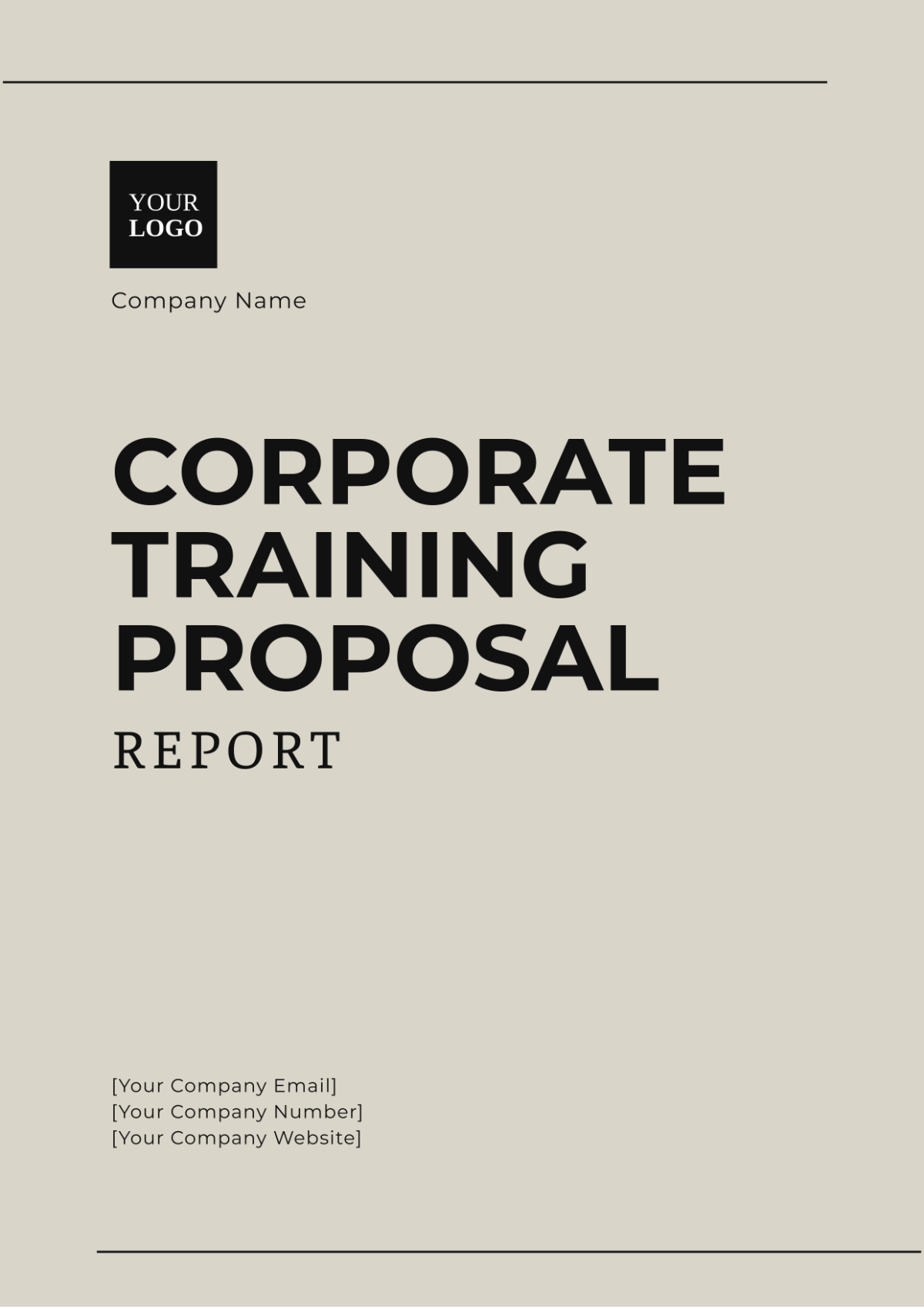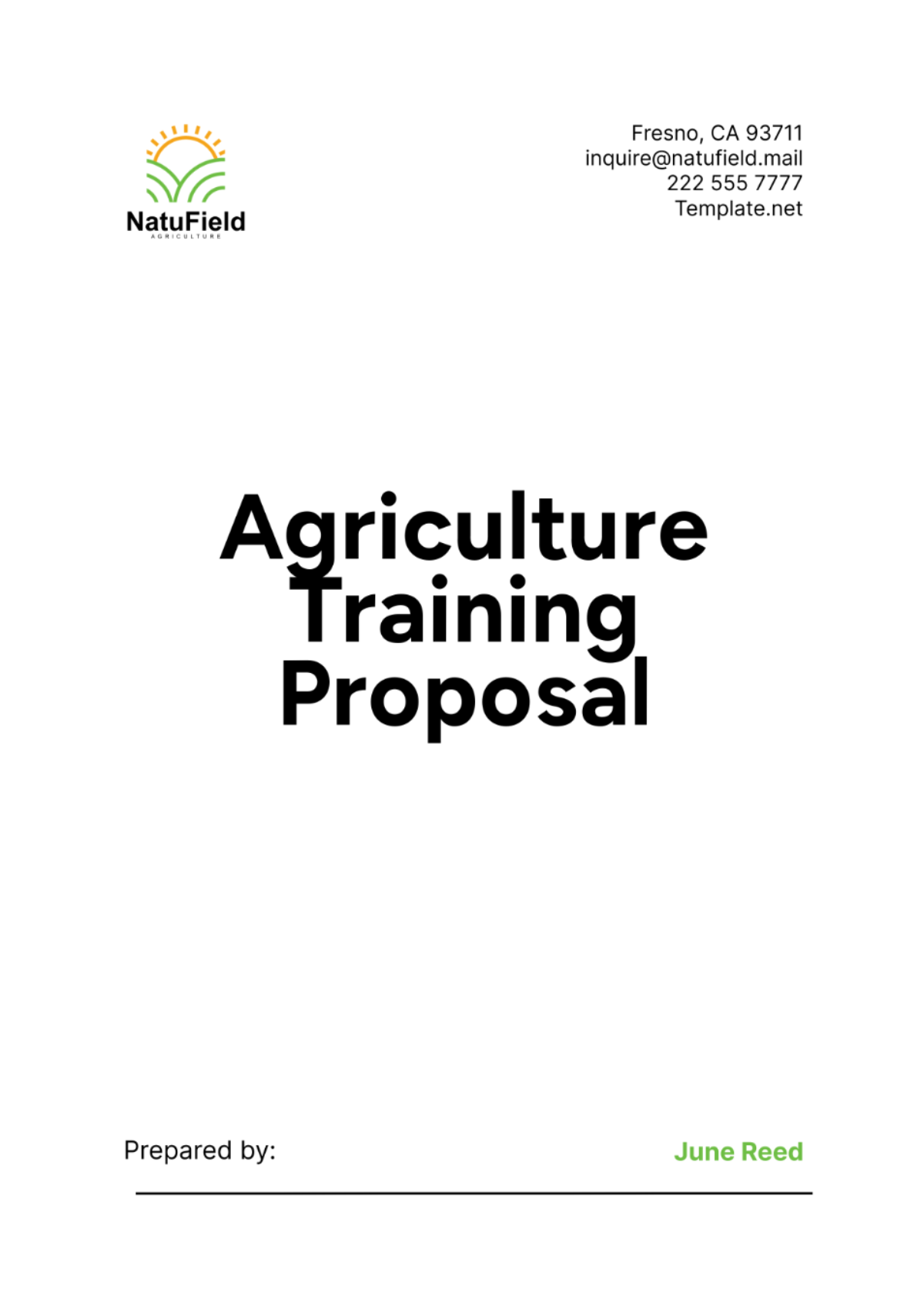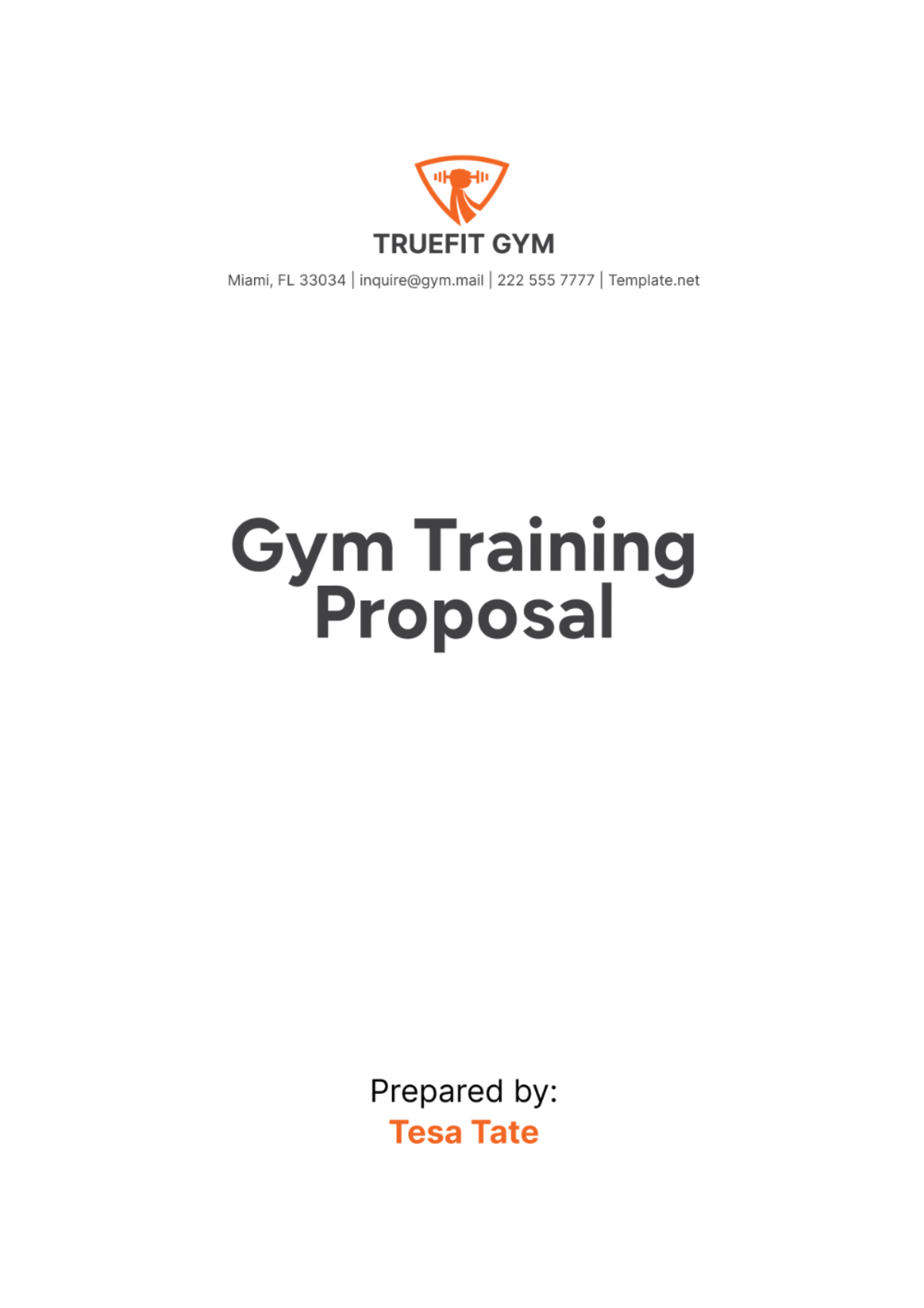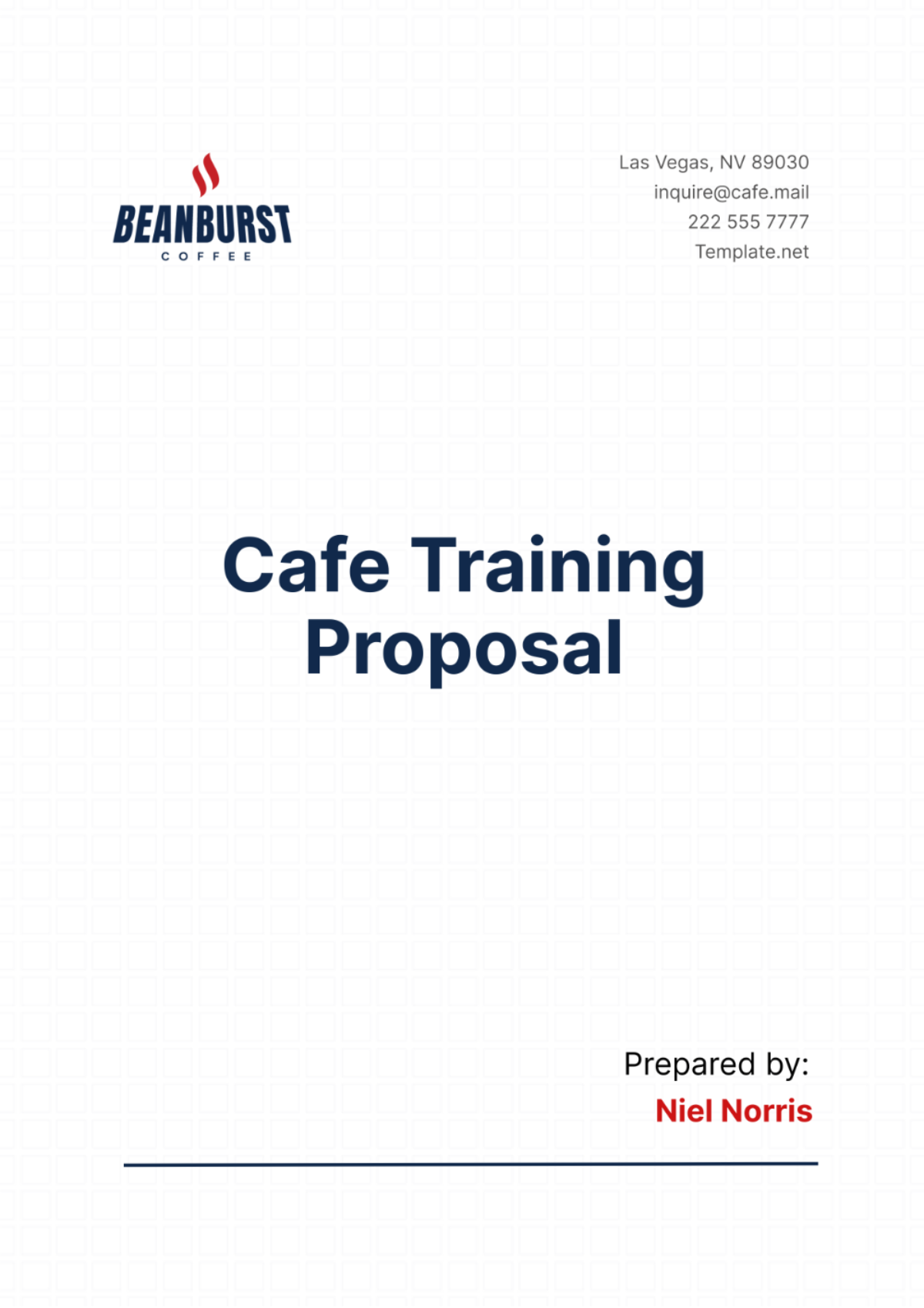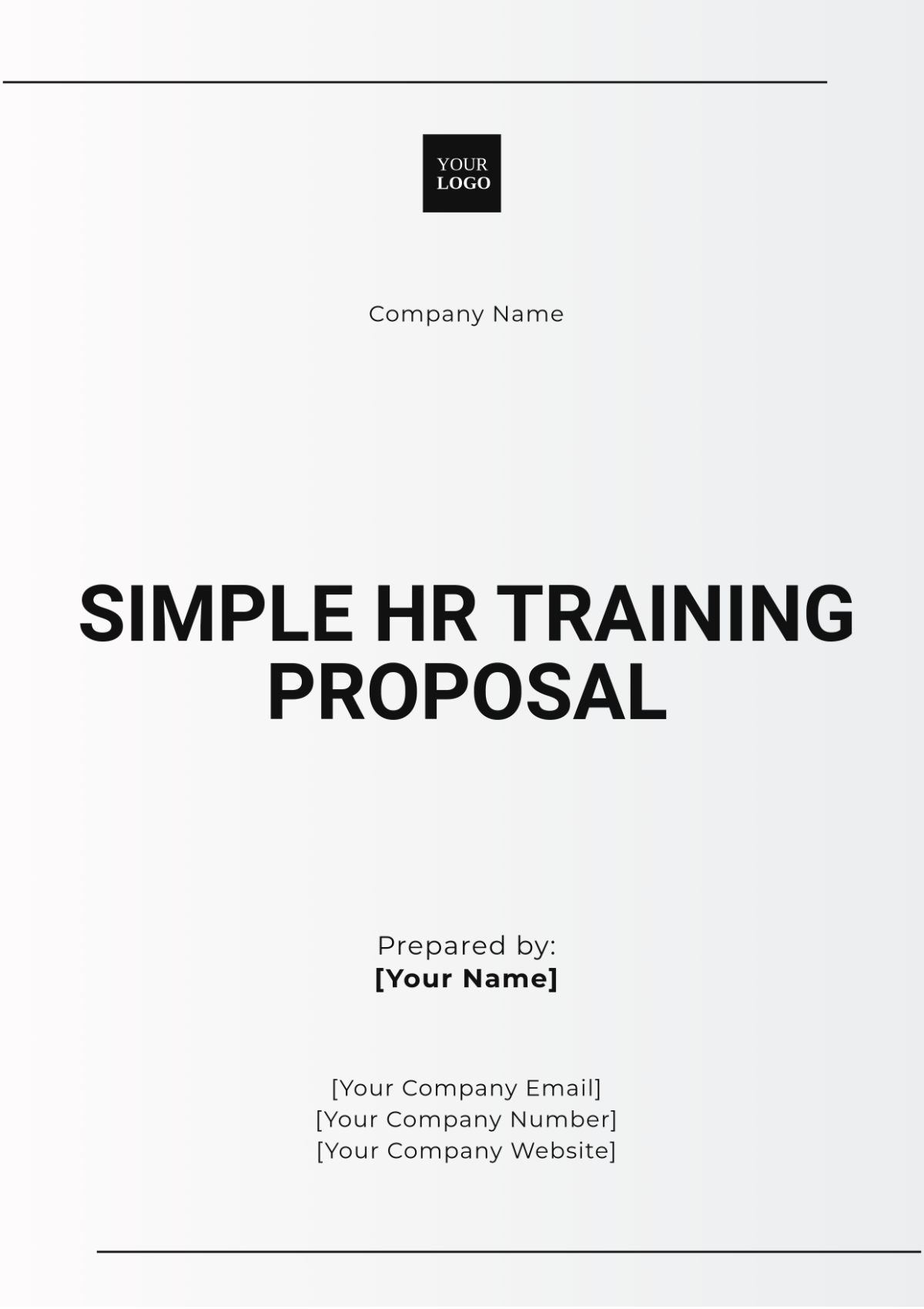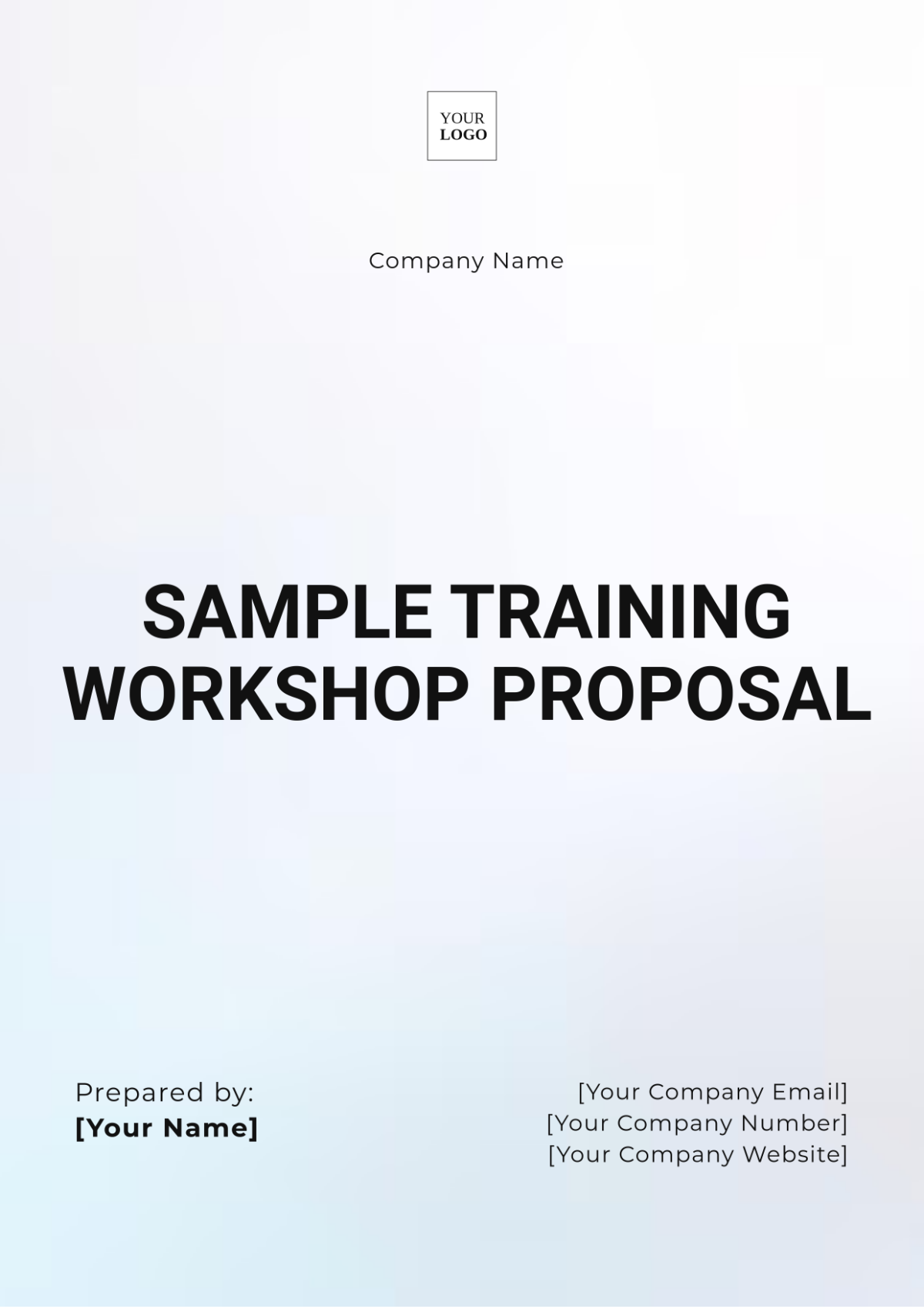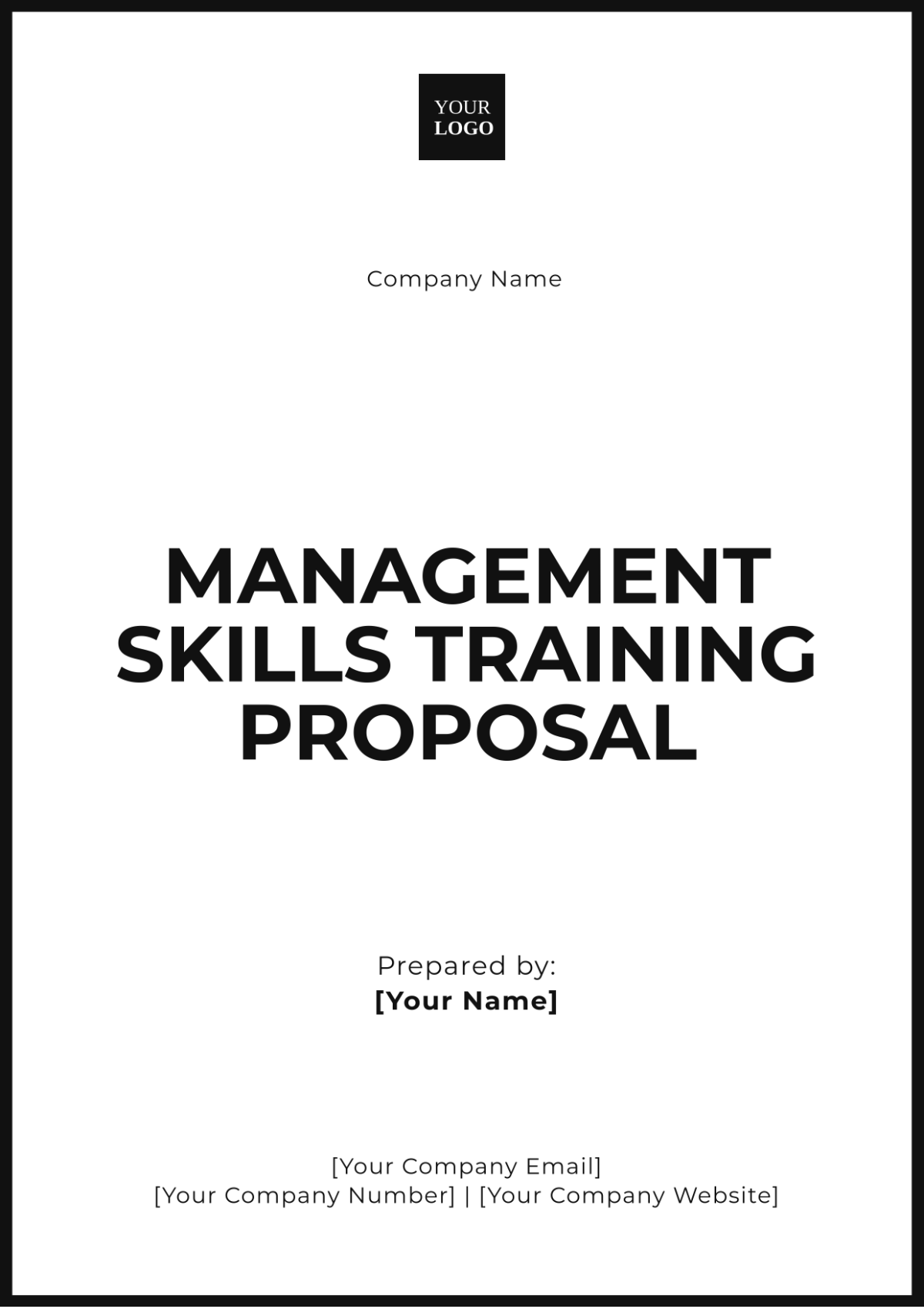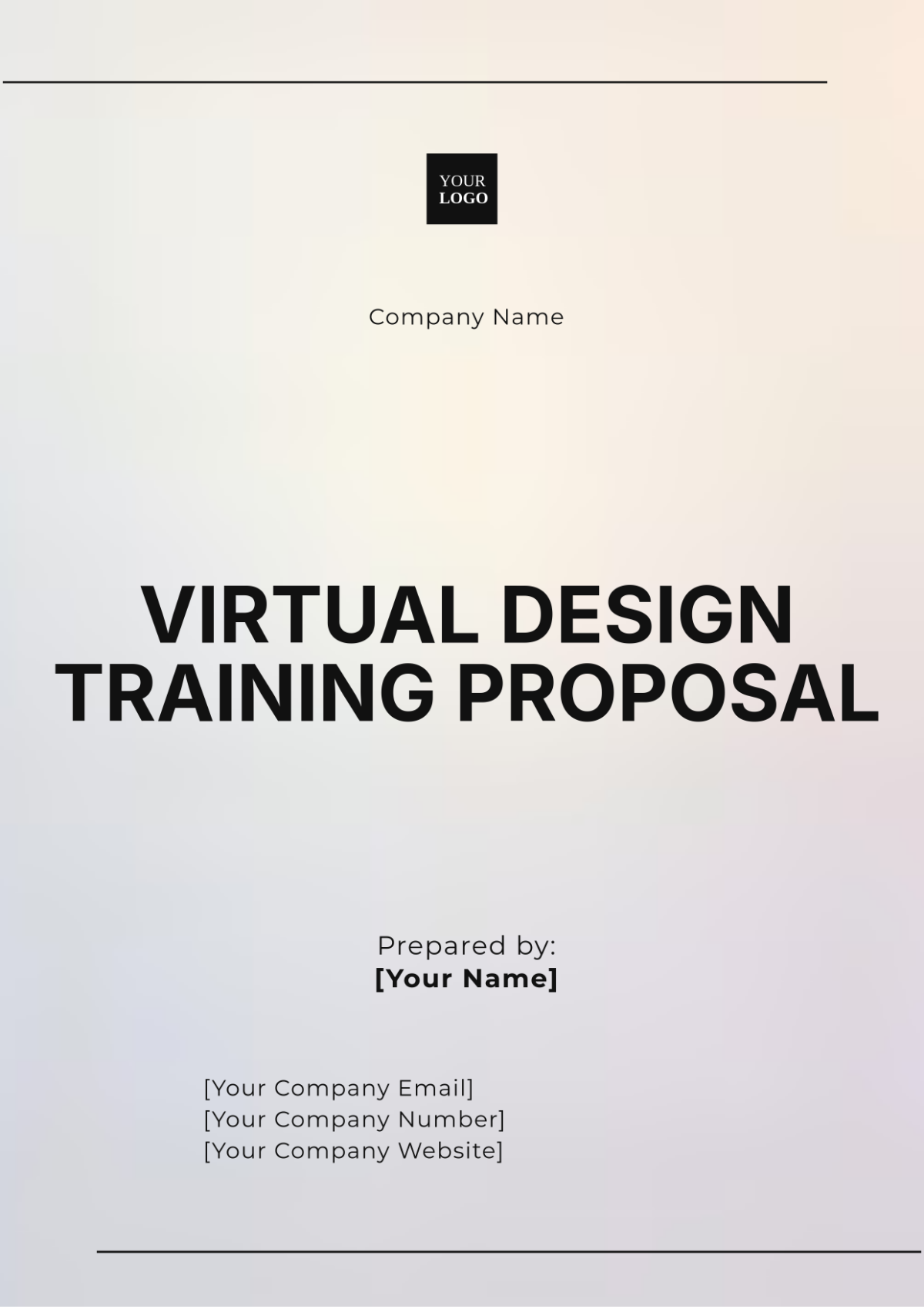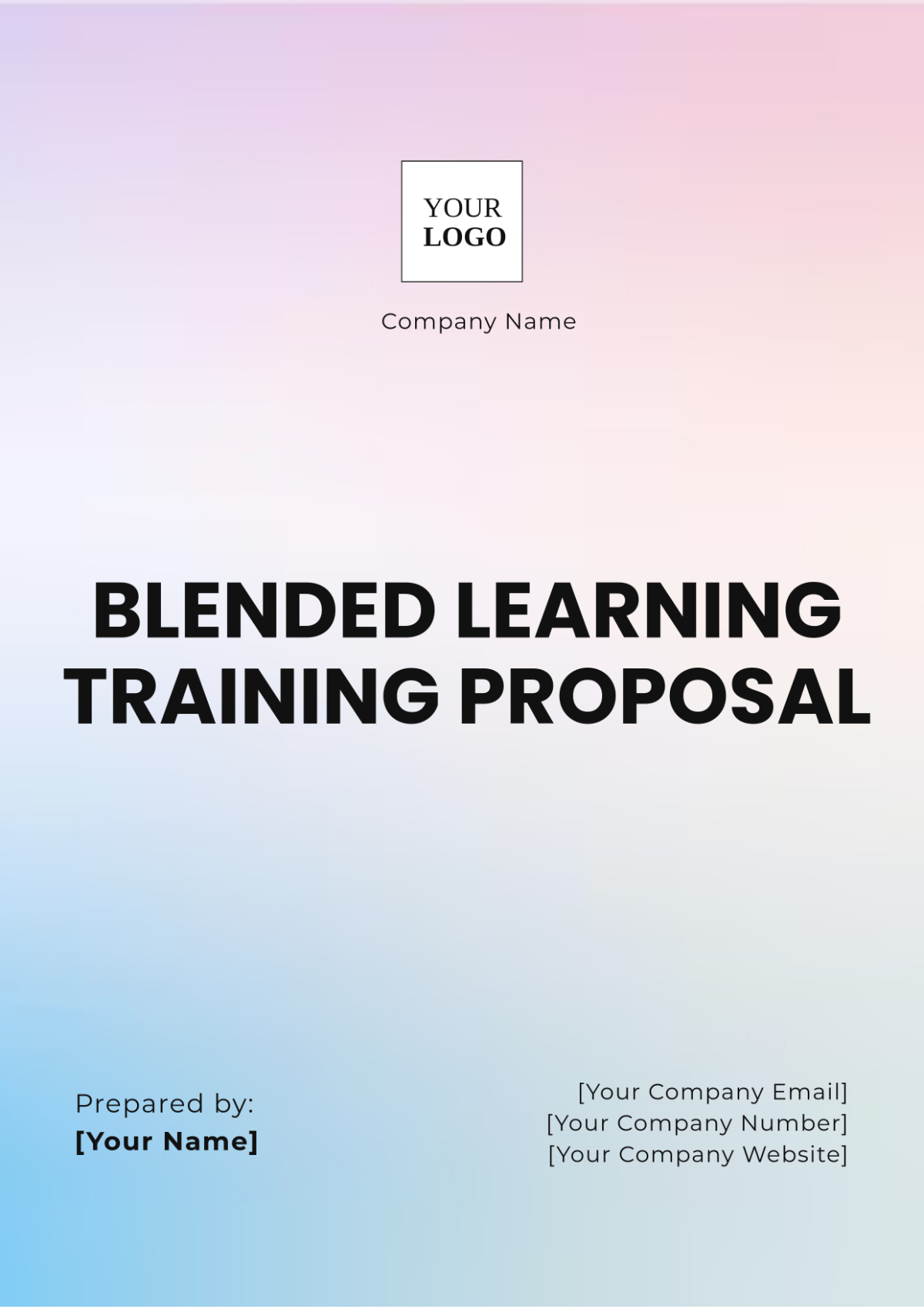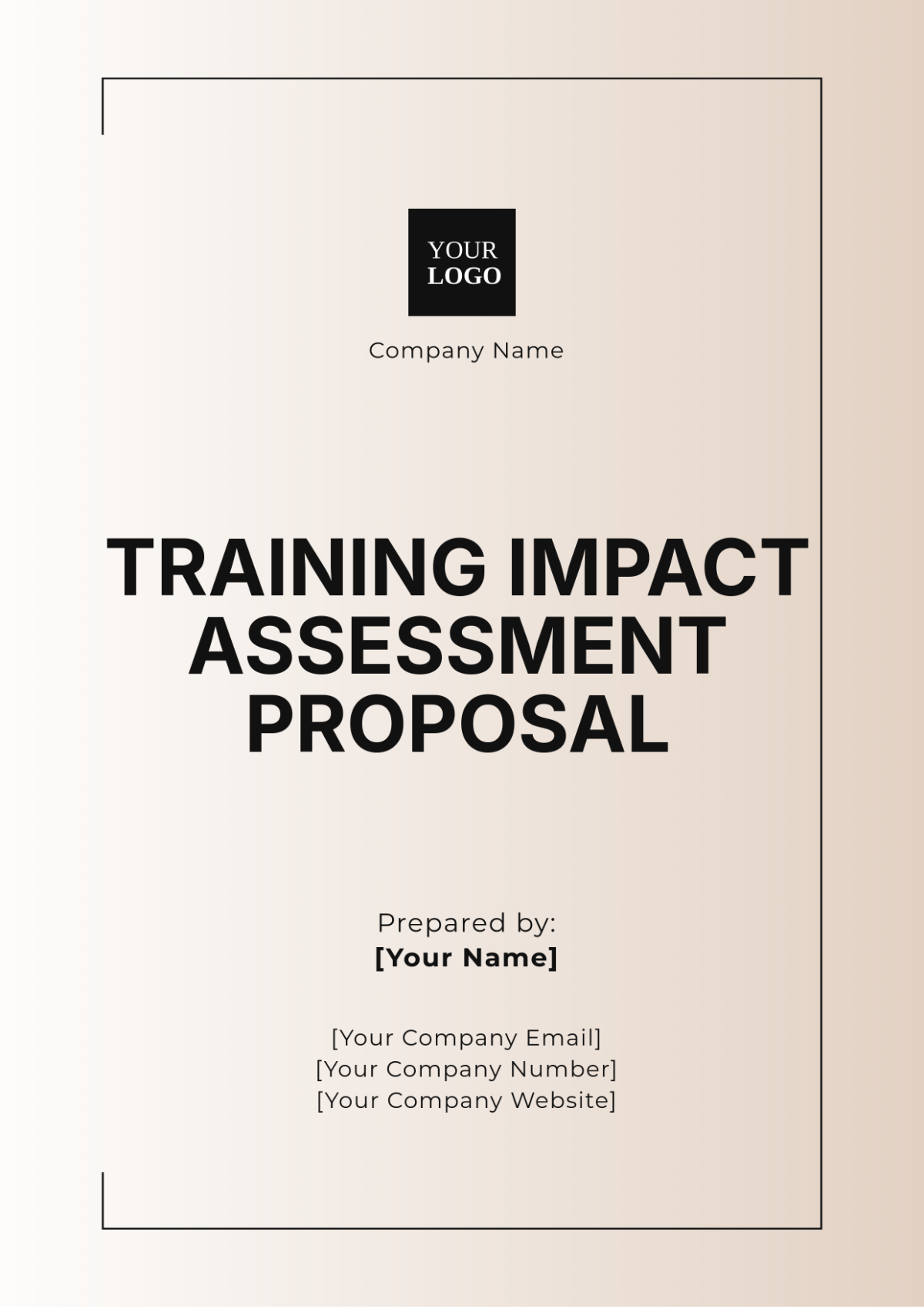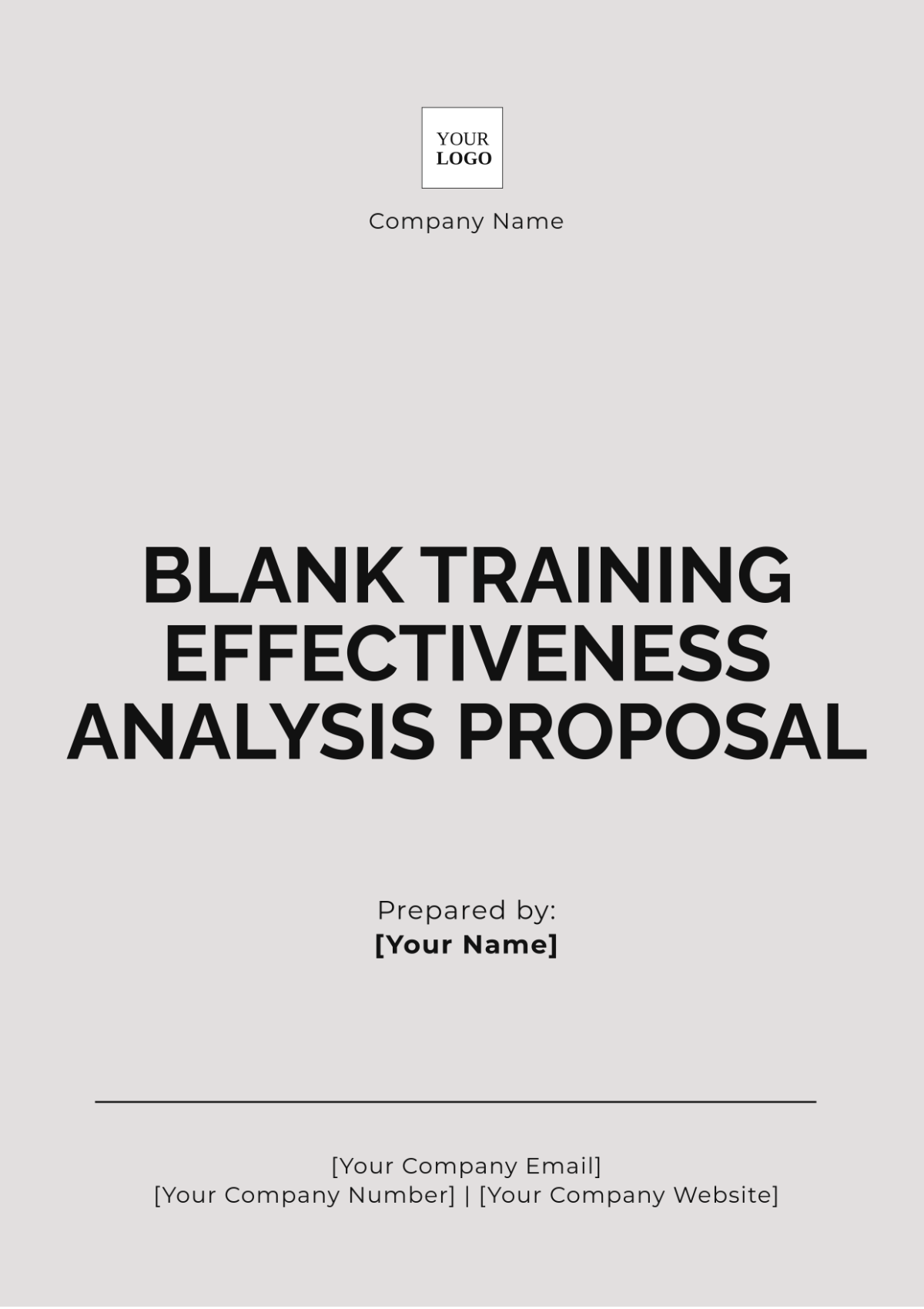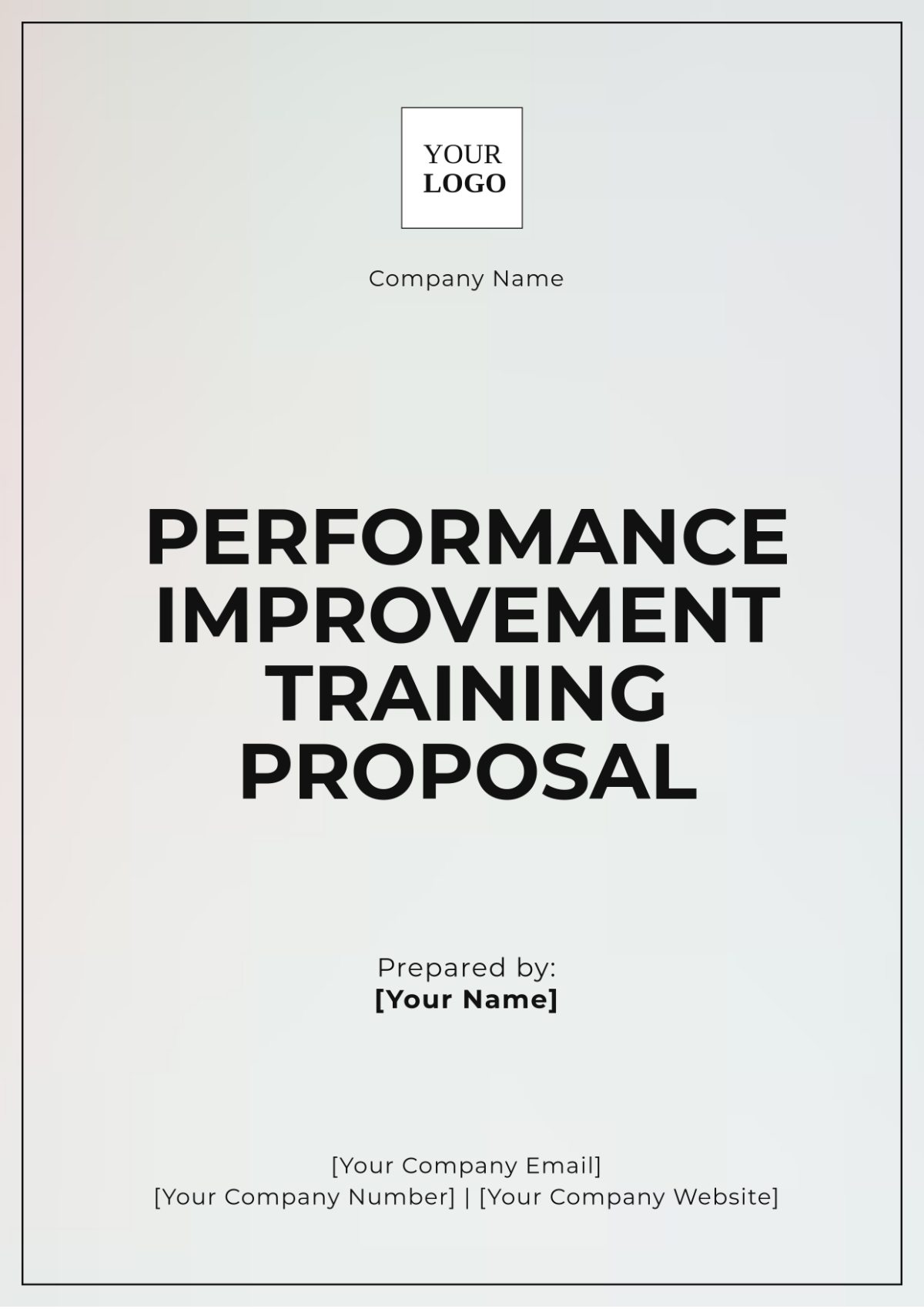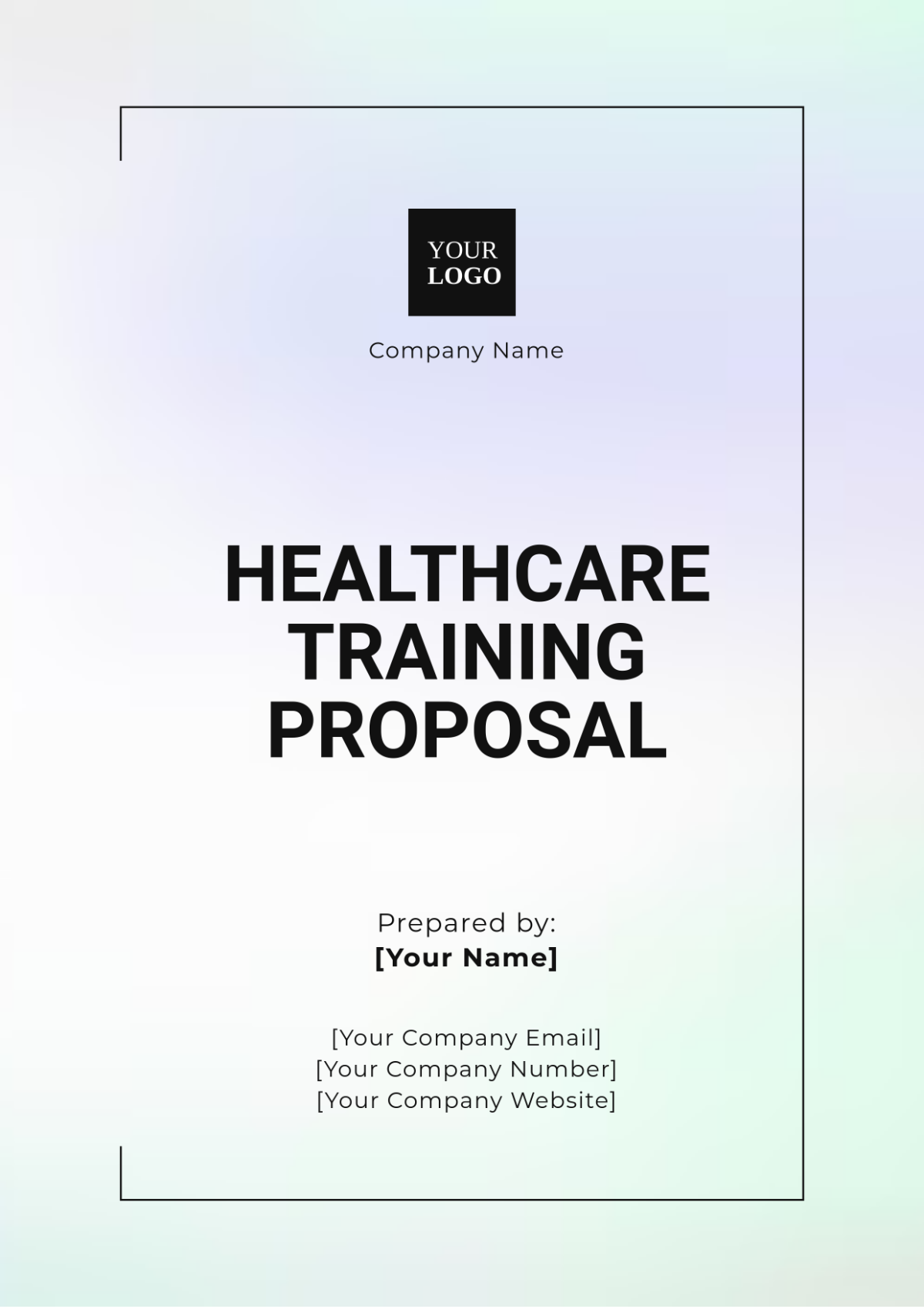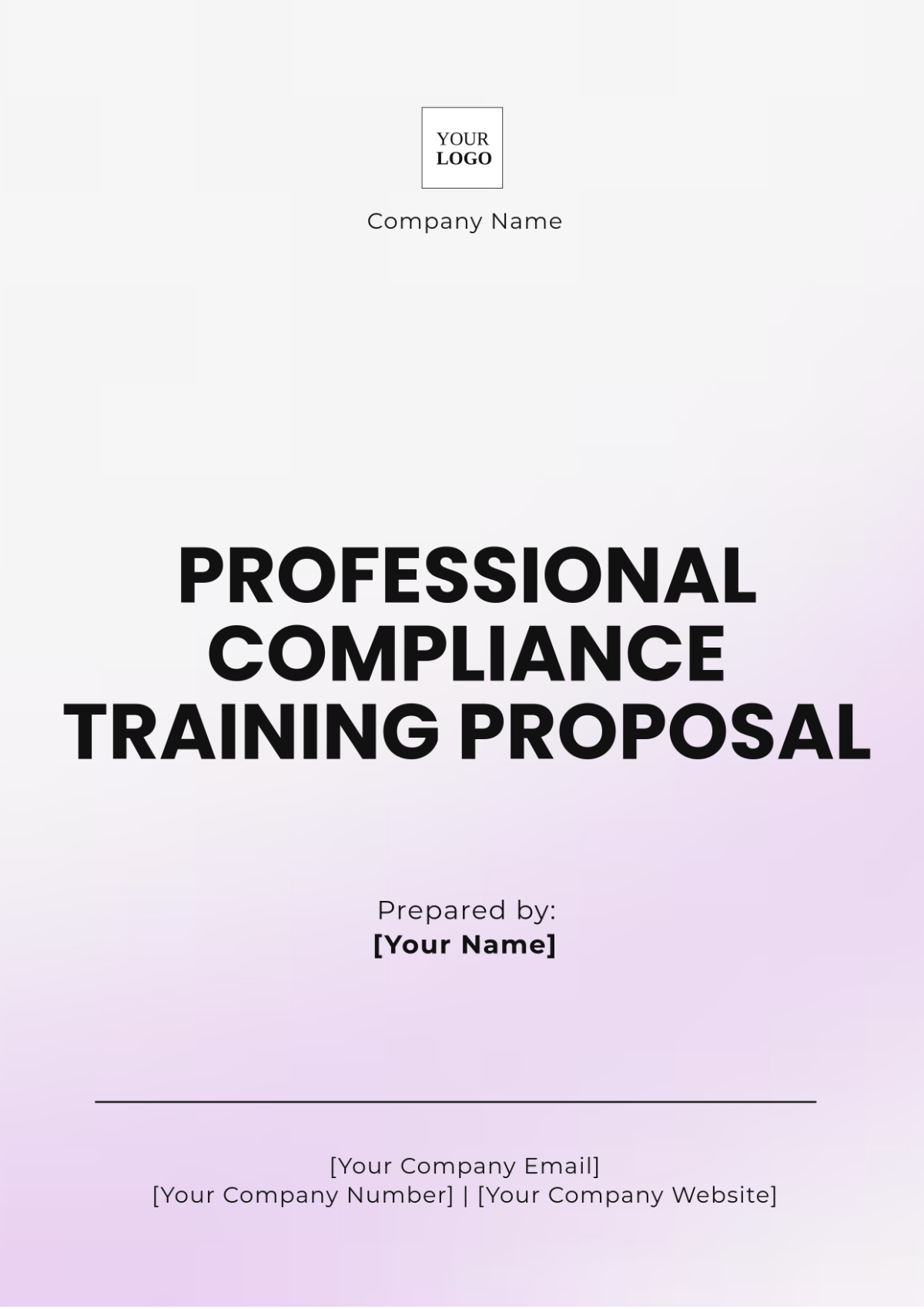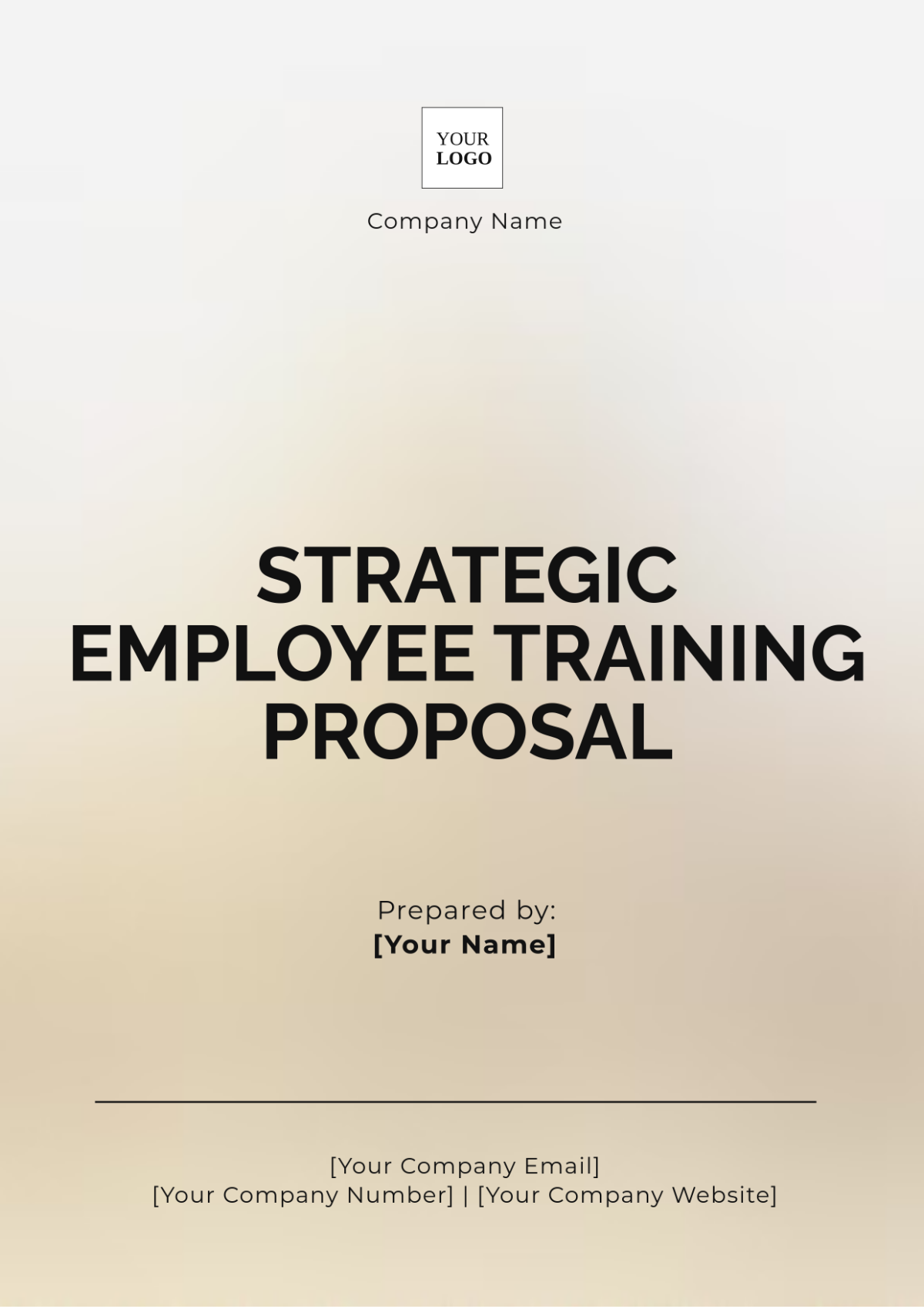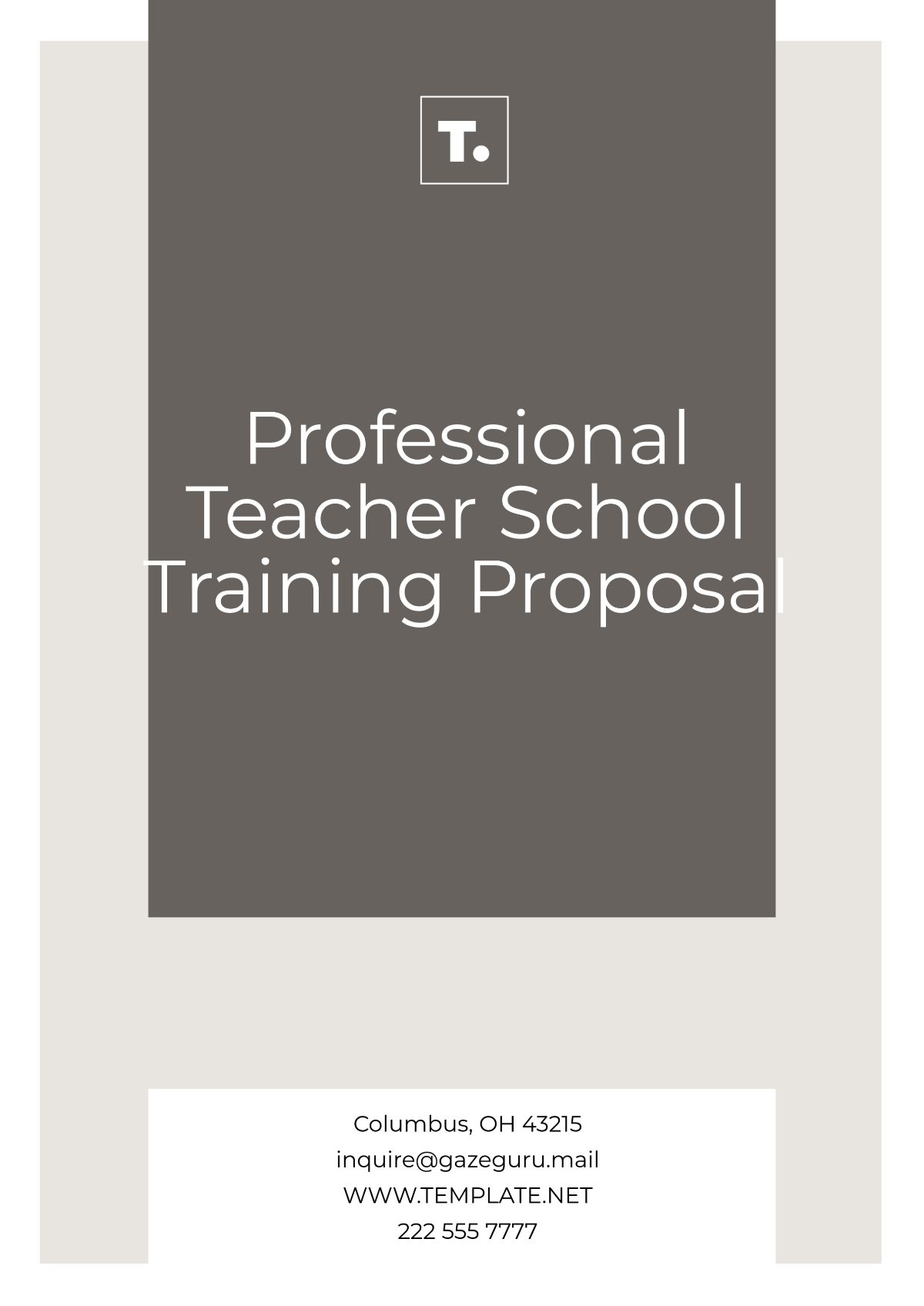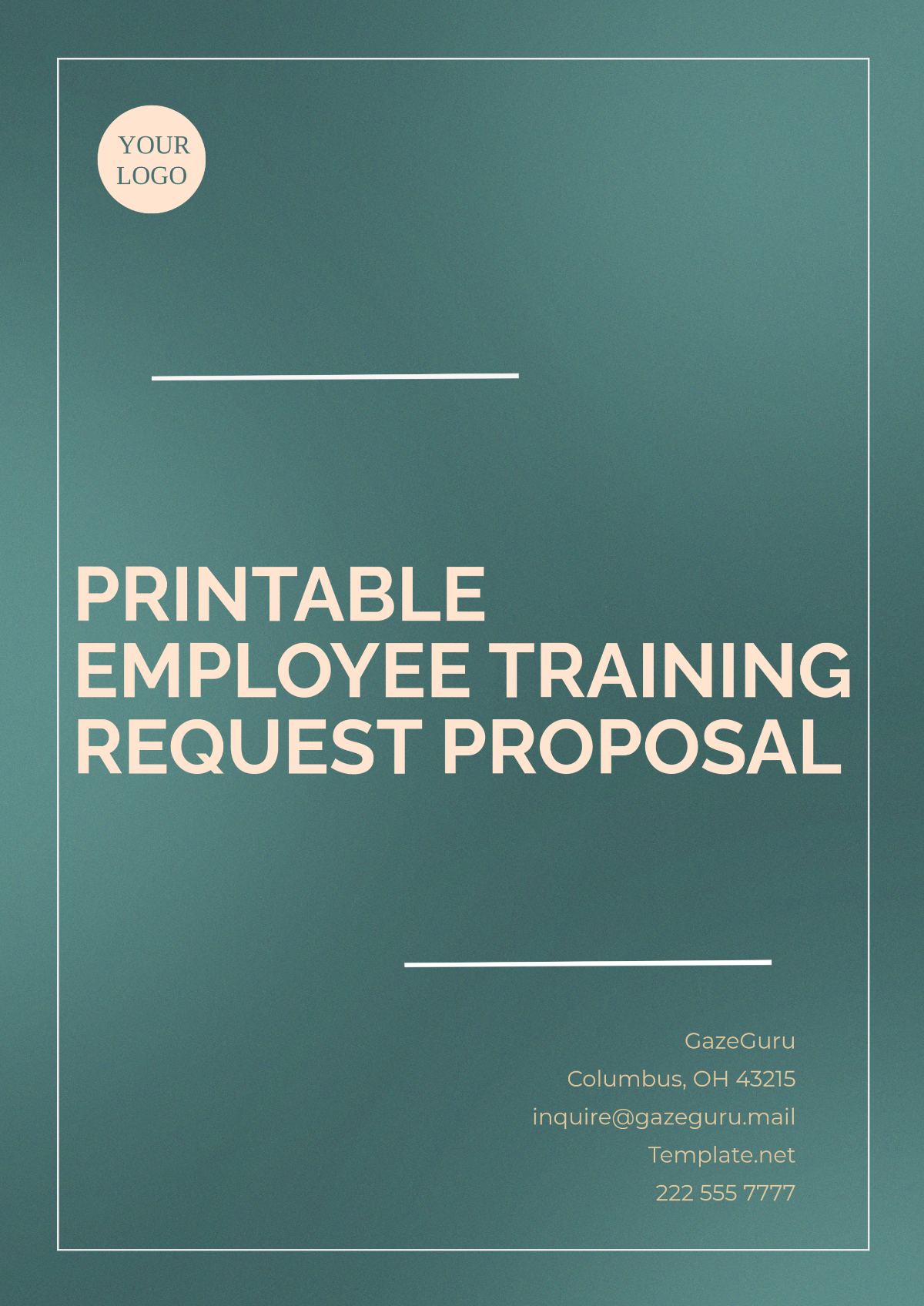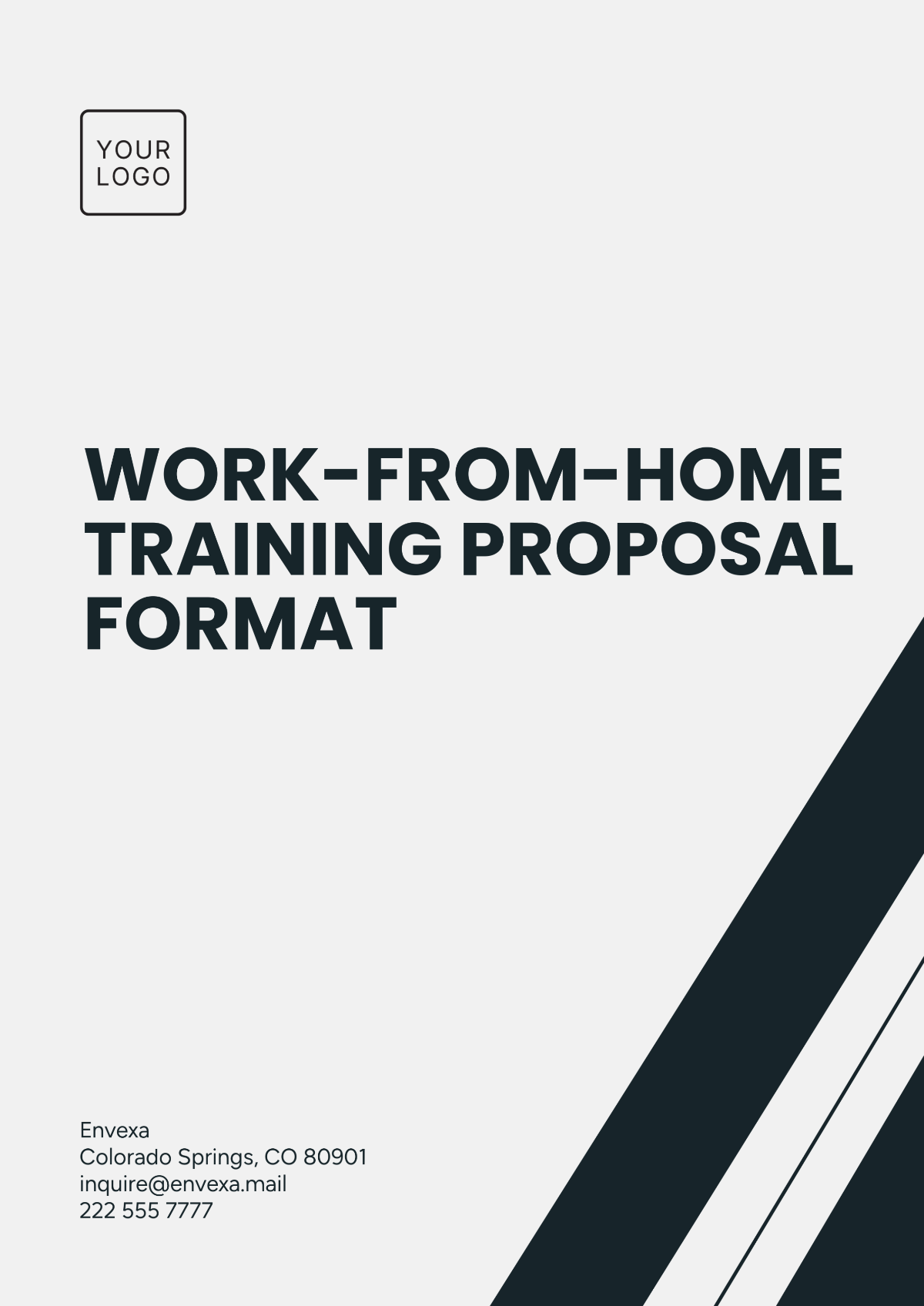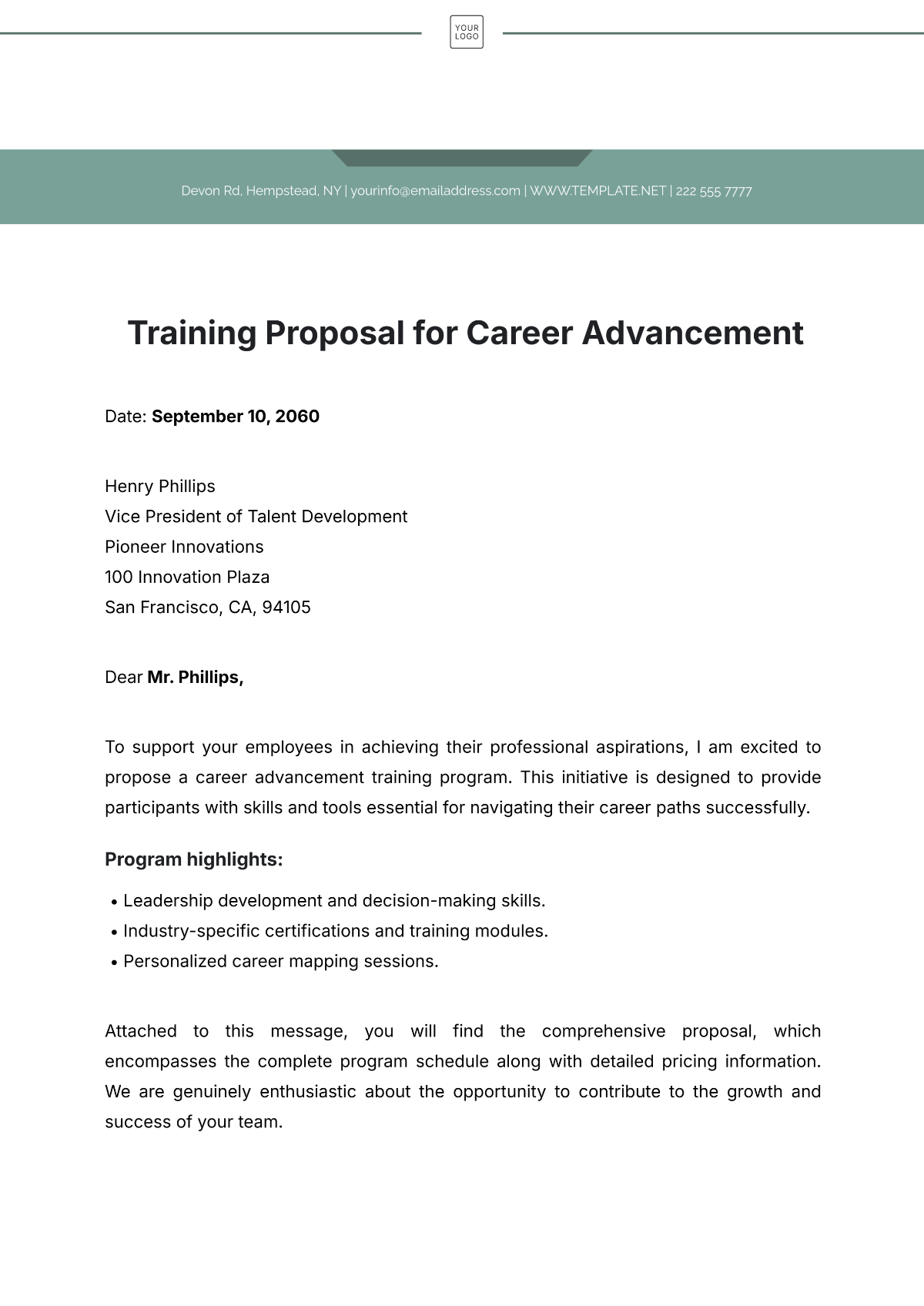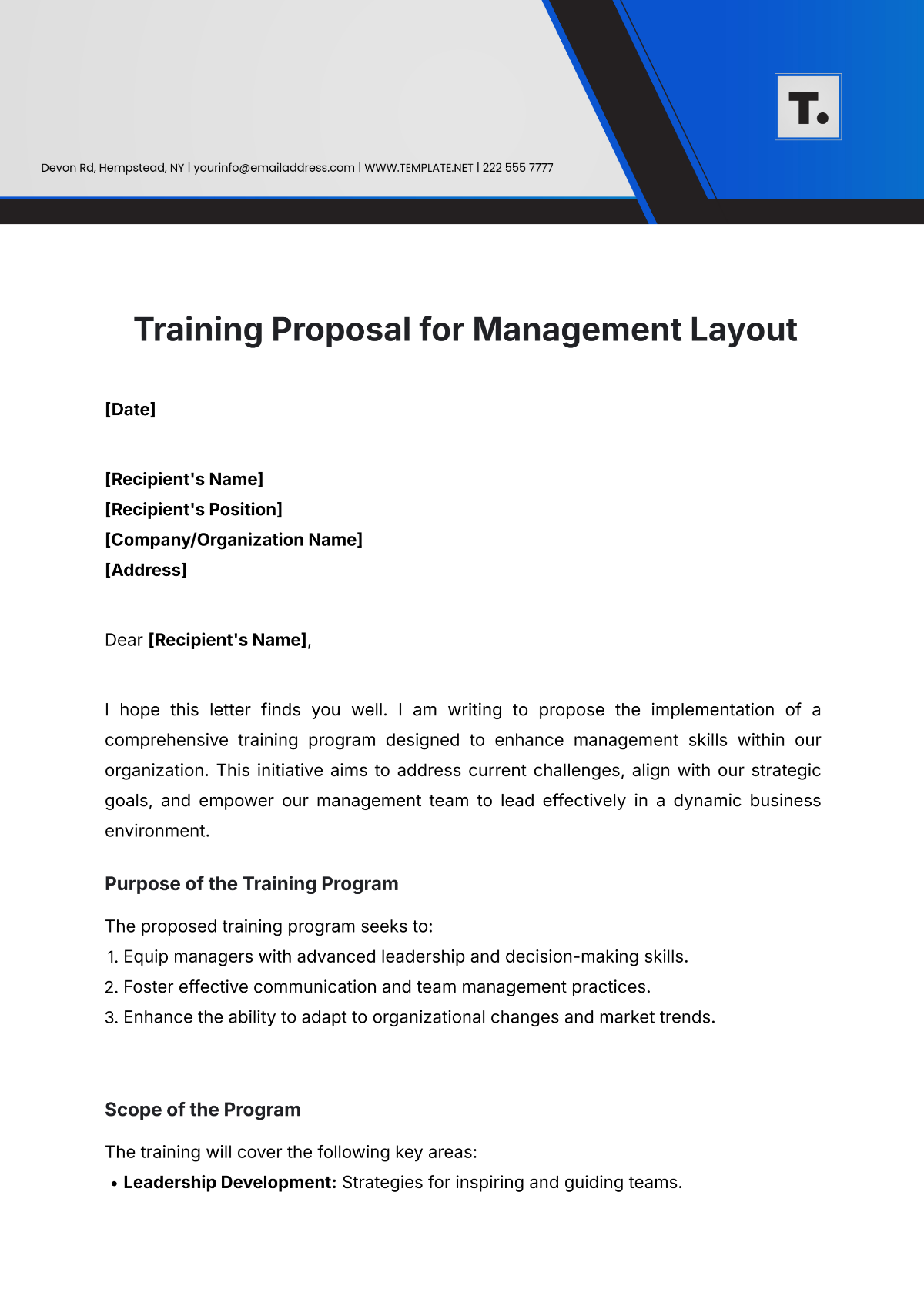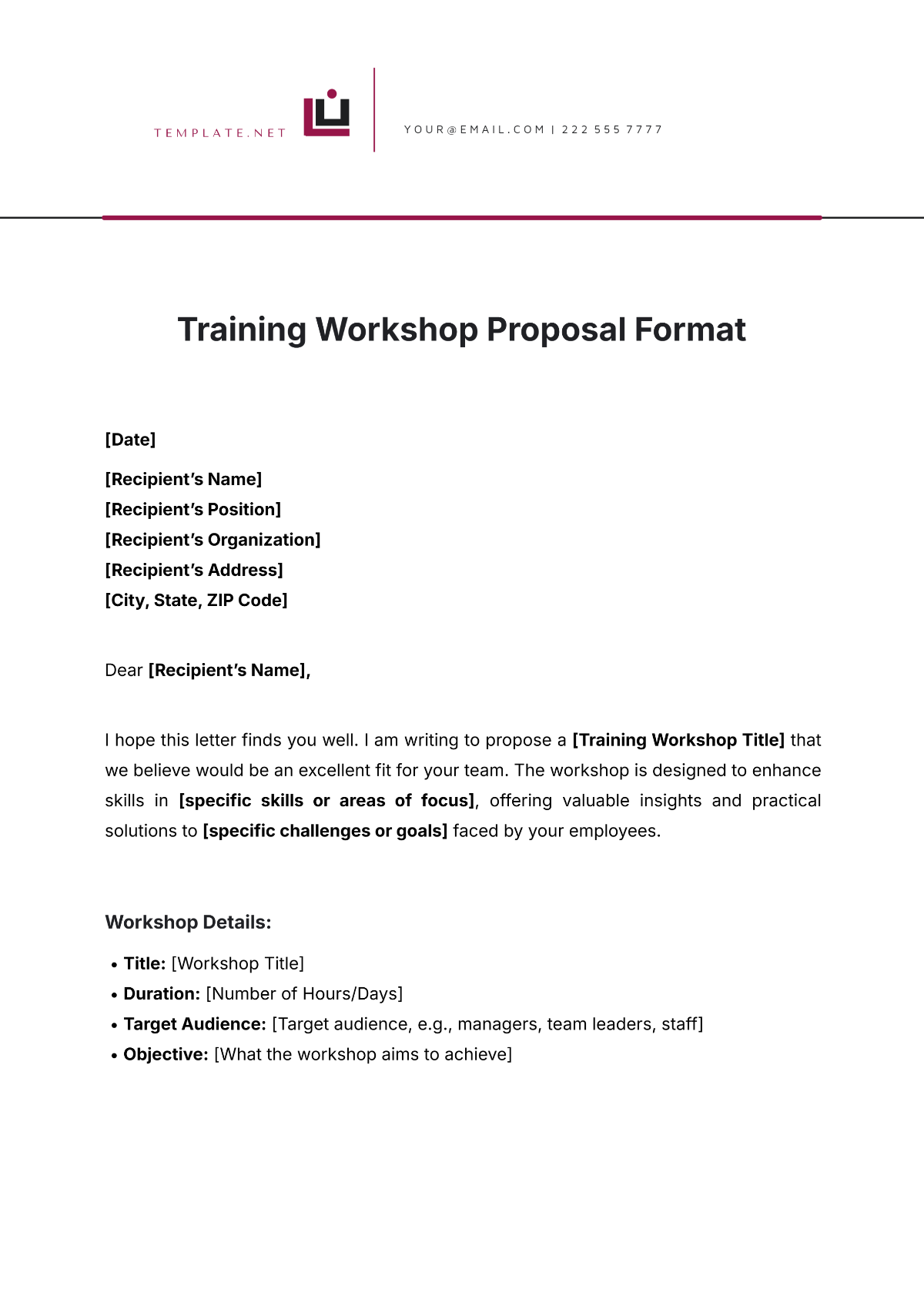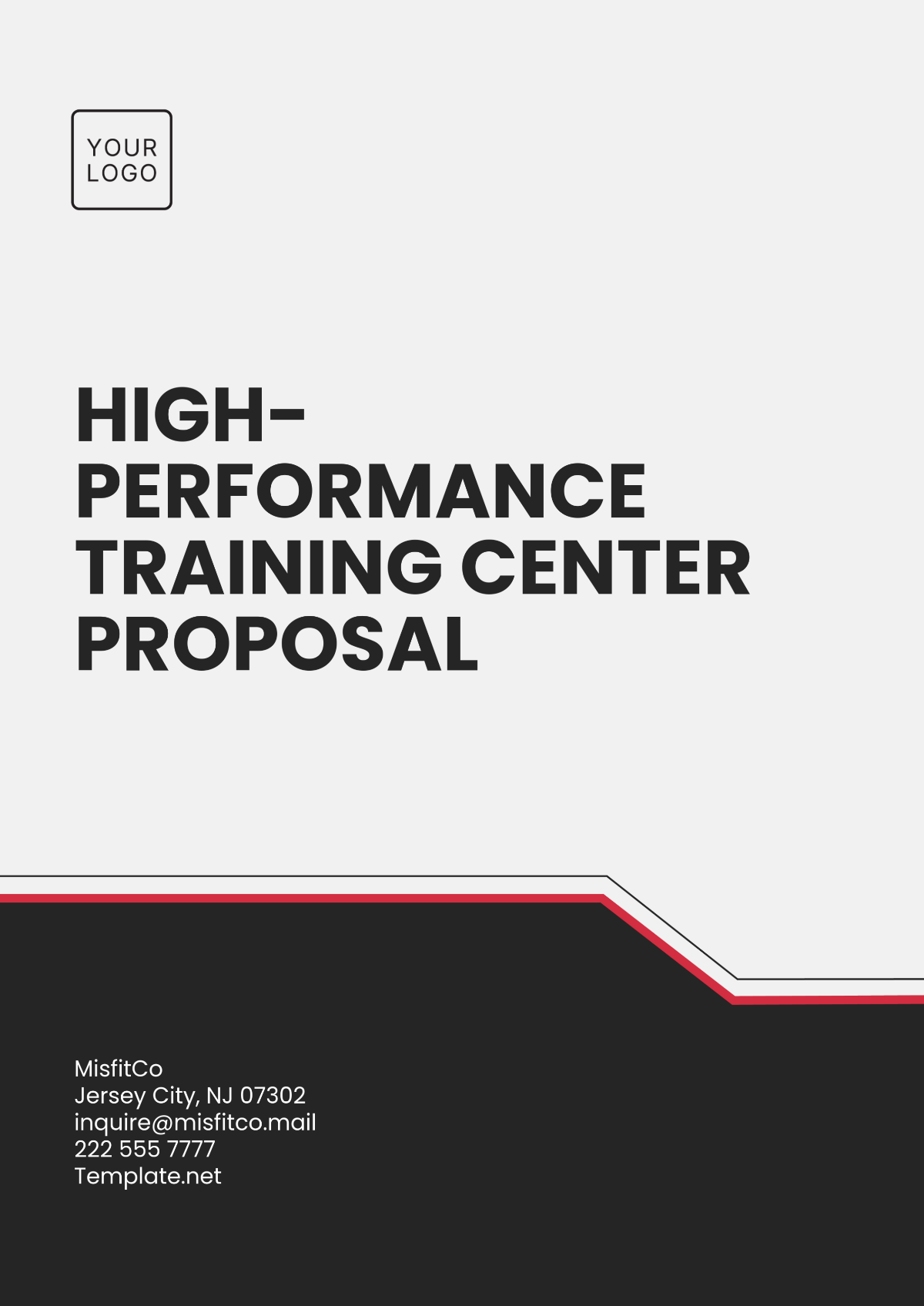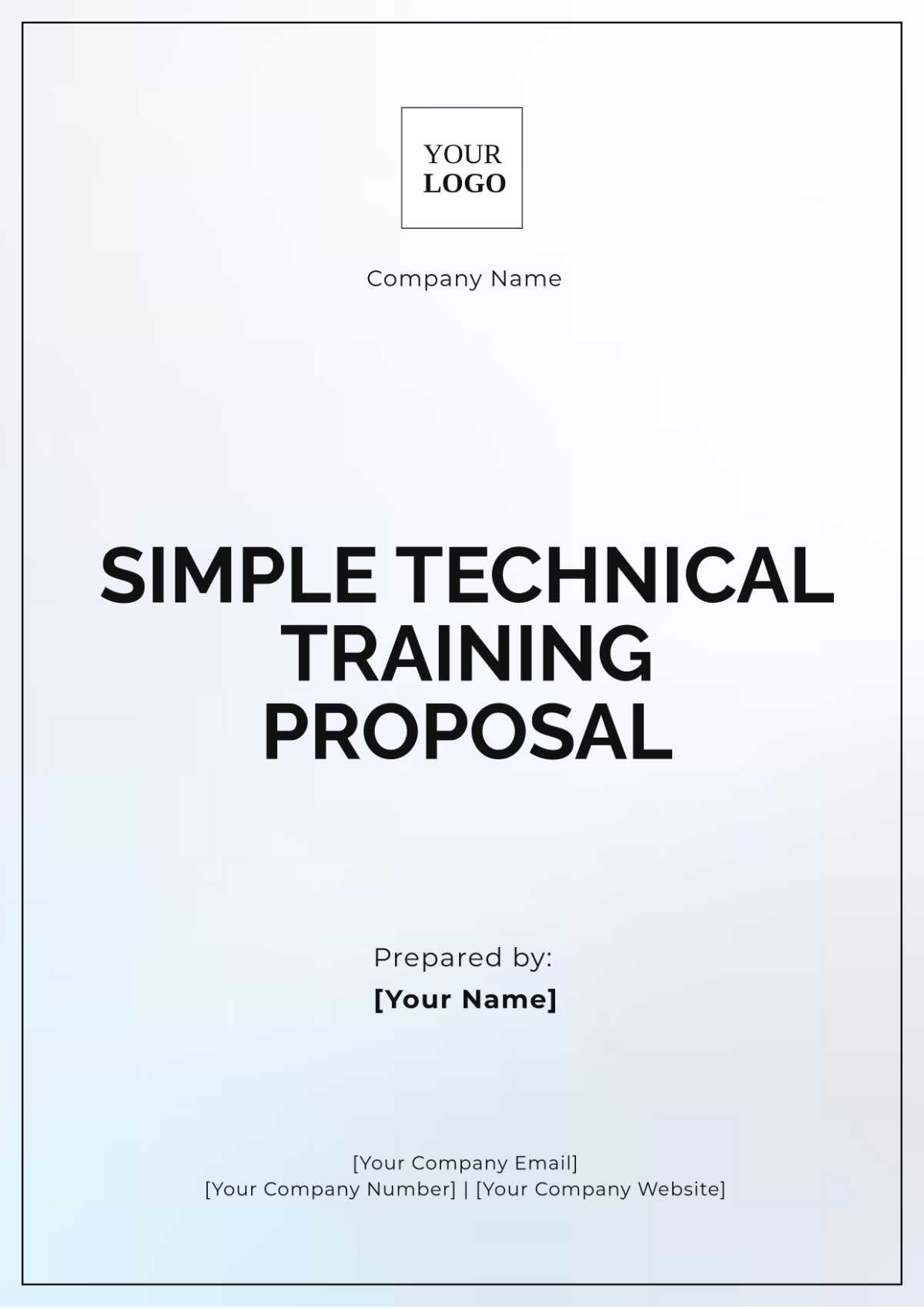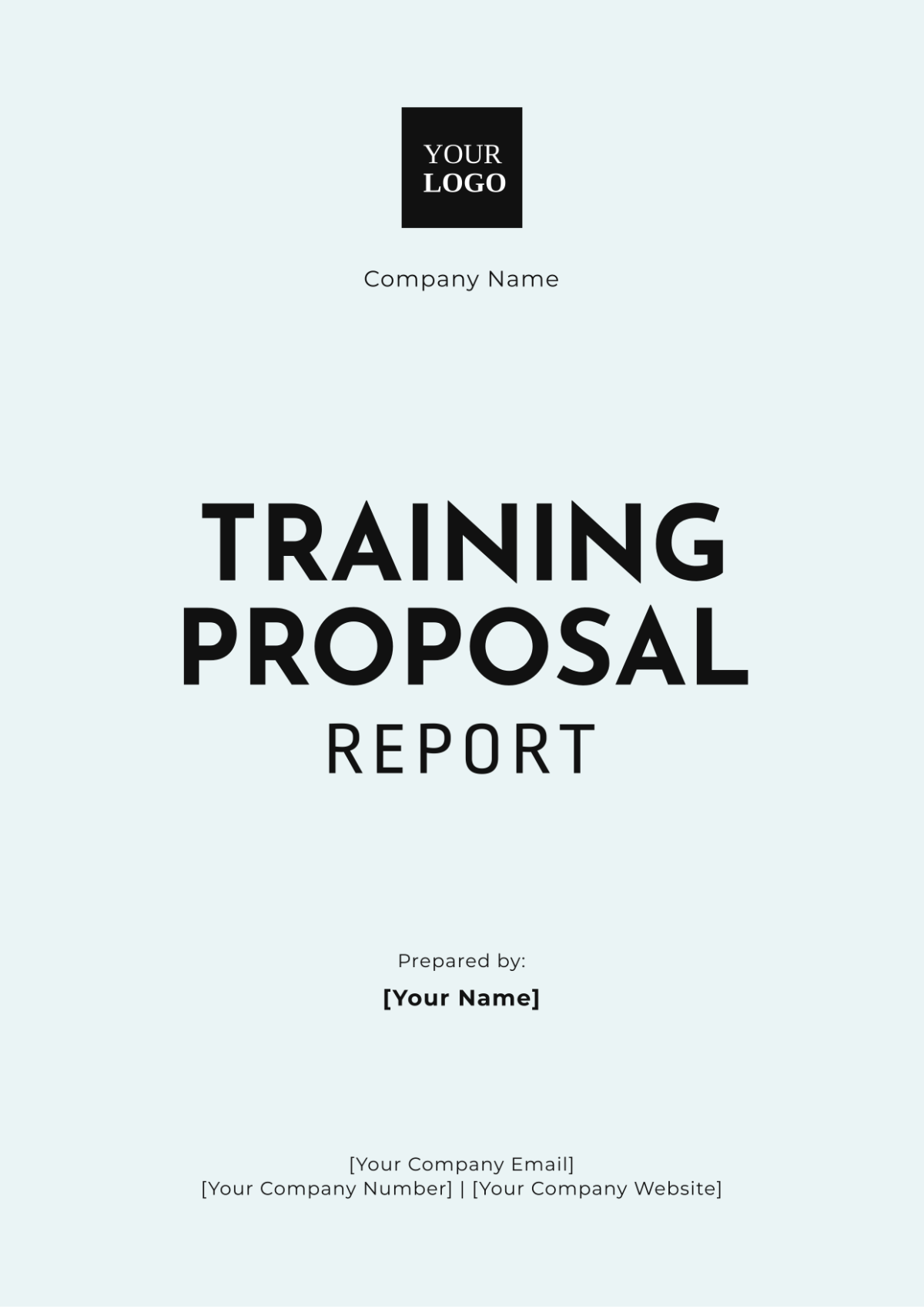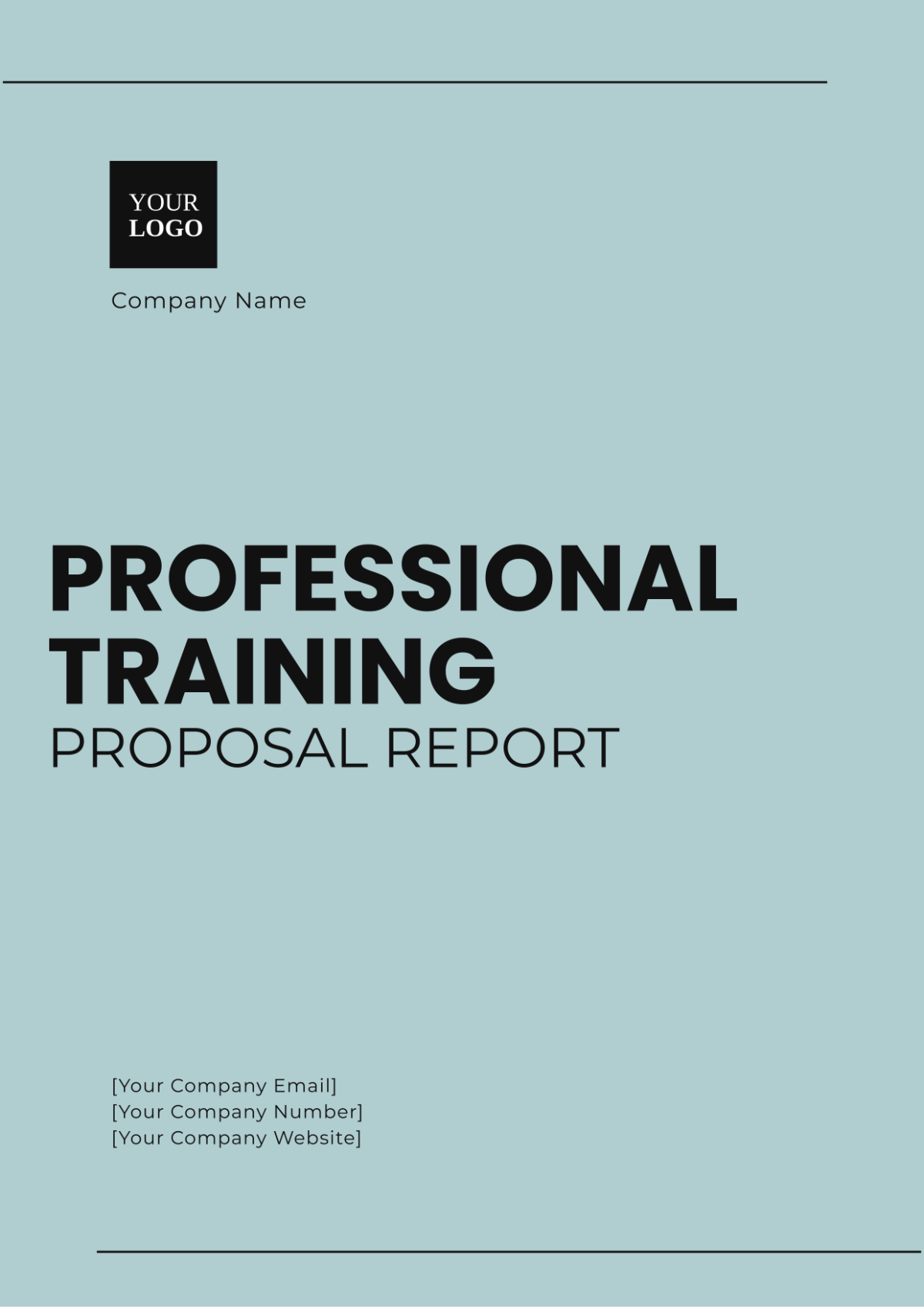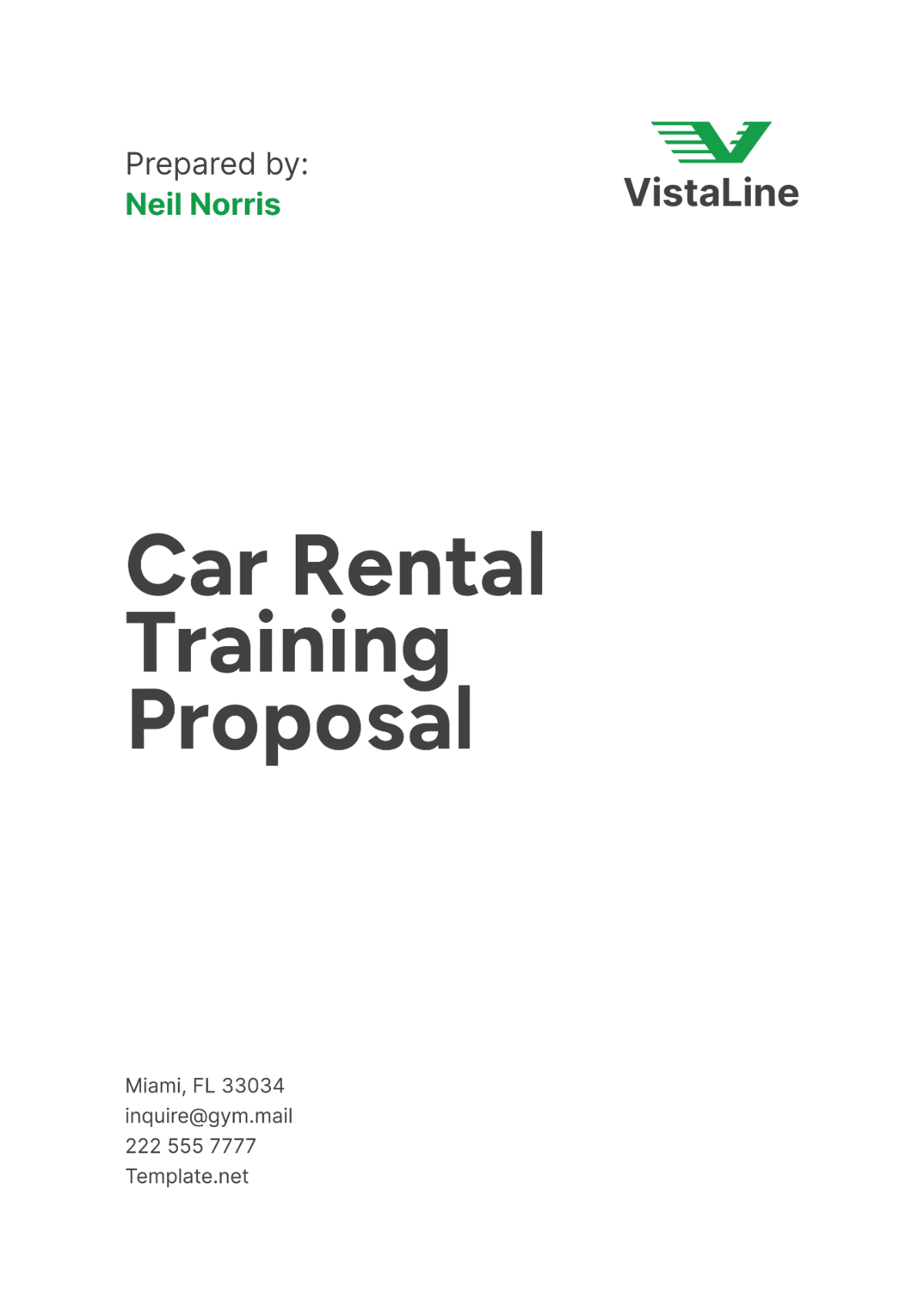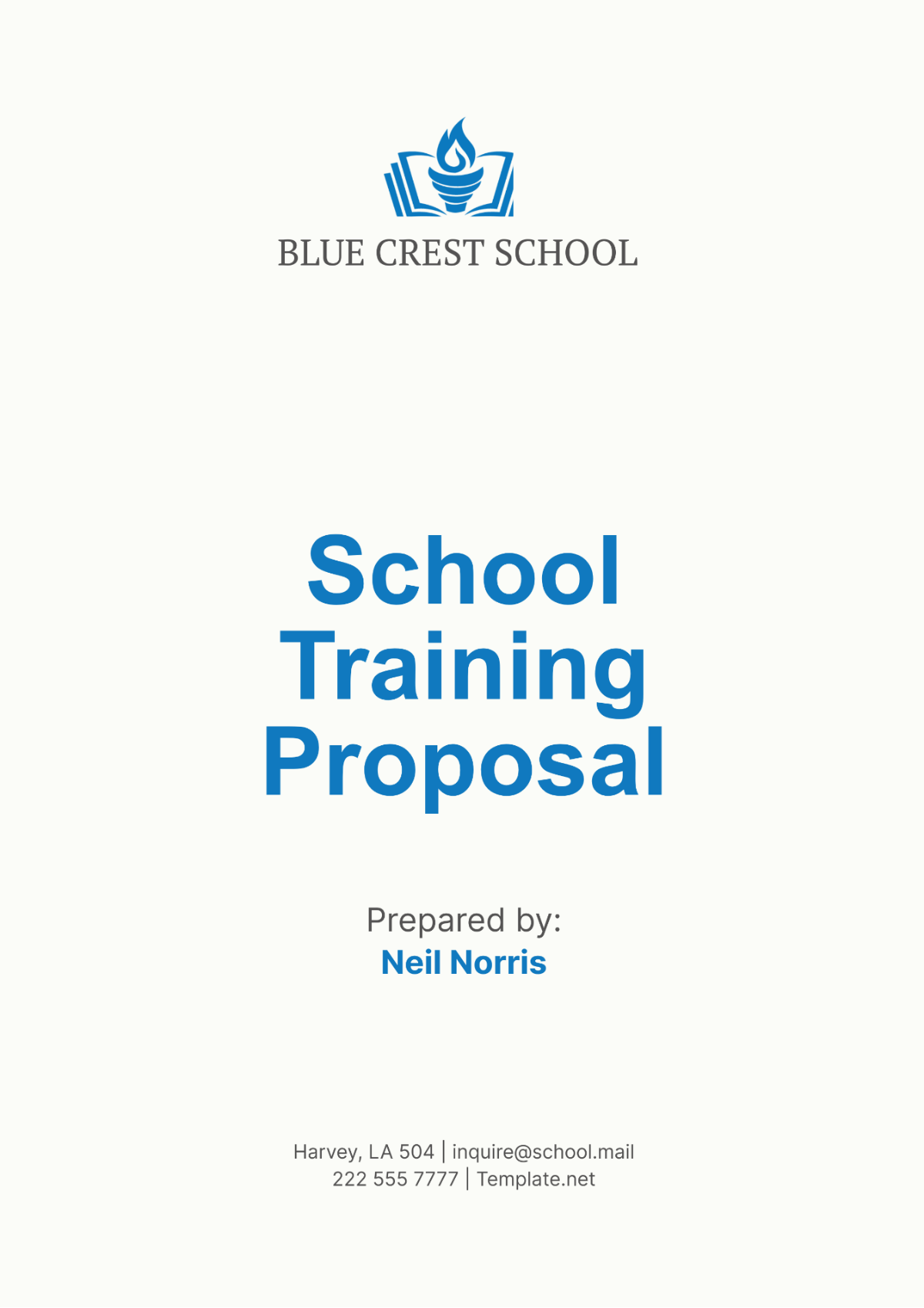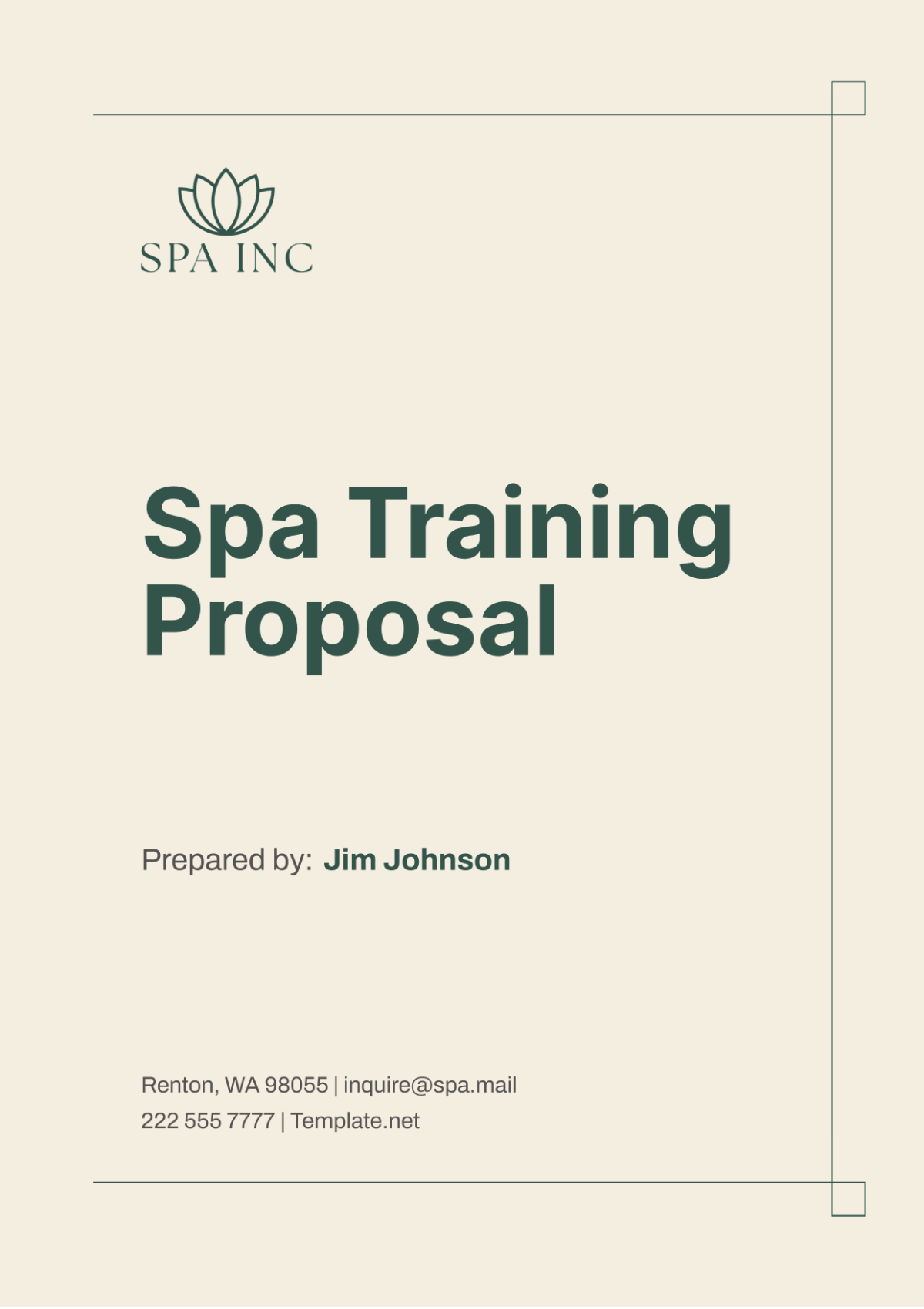E-Learning Course Training Proposal
Prepared by: [Your Name]
Company: [Your Company Name]
Date: [Date]
I. Executive Summary
This proposal outlines a comprehensive plan for the development and delivery of an innovative e-learning course titled "Advanced Project Management Skills for Professionals." The course aims to equip participants with essential project management tools and techniques to enhance their effectiveness in various professional settings. It addresses the course's primary goals, structure, and projected impact, targeting stakeholders invested in educational advancements, including corporate training departments, educational institutions, and individual learners.
By integrating modern instructional design methodologies, a targeted audience approach, and a detailed evaluation plan, this document seeks to demonstrate the value and feasibility of the proposed course. The course not only aims to improve participant skill sets but also aspires to create a community of learners who can exchange knowledge and experiences.
II. Course Objectives
This section outlines the key objectives of the e-learning course. Our aims include:
Enhancing the learners' knowledge and skills in the specific subject area of project management, covering methodologies such as Agile and Waterfall.
Utilizing interactive content to increase engagement and retention. This includes gamified learning modules, case studies, and real-world simulations.
Providing measurable outcomes to validate the effectiveness of the course, ensuring that participants can apply what they have learned in their work environments.
Facilitating scalable and accessible learning for a diverse audience, ensuring that the course is inclusive and adaptable to various learning needs and environments.
A. Measurable Goals
Each objective will have quantifiable indicators to ensure the course achieves its intended outcomes, such as:
Test Scores: Aiming for an average score of 80% or higher in course assessments.
Completion Rates: Targeting a completion rate of 85% among participants.
User Feedback Surveys: Collecting feedback to achieve a satisfaction rating of 90% or above.
III. Target Audience
The course aims to address the needs of a specific group of learners. The target audience for this e-learning course includes:
Professionals seeking continued education in the field of project management, particularly those aspiring to move into managerial roles.
Students looking to supplement their formal education with practical skills, especially those enrolled in business or management programs.
Enthusiasts interested in gaining a comprehensive understanding of project management, including freelancers and small business owners.
The course will be accessible to participants with varying levels of prior knowledge, utilizing a flexible approach to content delivery. This includes introductory sessions for beginners and advanced modules for seasoned professionals.
IV. Course Content
The content is divided into several thematic modules, providing learners with a logical progression through the material.
Module Structure
Module | Topics | Estimated Duration |
|---|---|---|
Module 1 | Introduction to Subject | 2 weeks |
Module 2 | Advanced Techniques | 3 weeks |
Module 3 | Practical Applications | 2 weeks |
V. Instructional Design Methodology
The course will employ evidence-based instructional strategies to ensure effective learning.
A. Learning Platforms
The course will be hosted on a robust Learning Management System (LMS) that supports interactive media, quizzes, and forums to foster community interaction among students. The LMS will include features such as:
Mobile Accessibility: Allowing learners to access content on various devices.
Gamification Elements: Incorporating badges and leaderboards to motivate participants.
B. Teaching Methods
Methods will include a mixture of:
Video Lectures: Engaging presentations from industry experts to introduce key concepts.
Interactive Exercises: Hands-on activities that allow learners to practice skills in real time.
Quizzes: Regular assessments to reinforce learning and gauge understanding.
Discussion Forums: Spaces for learners to share insights and collaborate on challenges, promoting a community of practice.
VI. Timeline
The following is the proposed timeline for the course development and delivery:
Phase | Activity | Duration |
|---|---|---|
Phase 1 | Course Development | 3 months |
Phase 2 | Pilot Testing | 1 month |
Phase 3 | Launch | Ongoing |
Phase Details
Phase 1: During this phase, all course content will be developed, including multimedia resources and assessments.
Phase 2: A pilot test will be conducted with a select group of participants to gather feedback and make necessary adjustments.
Phase 3: The course will be launched, with ongoing support and updates based on learner feedback.
VII. Budget
Below is the estimated budget for the development and rollout of the e-learning course:
Item | Cost |
|---|---|
Content Development | $10,000 |
LMS Platform Subscription | $2,000 |
Marketing and Outreach | $3,000 |
Miscellaneous | $1,000 |
Total Estimated Cost | $16,000 |
Budget Justification
Content Development: This includes costs for instructional designers, content creators, and multimedia producers.
LMS Platform Subscription: Covers licensing fees for hosting the course online.
Marketing and Outreach: Allocated for advertising the course to the target audience through various channels, including social media and email campaigns.
Miscellaneous: A contingency fund for unforeseen expenses, such as additional resources or technology needs.
VIII. Evaluation Plan
The effectiveness of the course will be continuously evaluated using the following strategies:
A. Formative Evaluation
Ongoing assessments throughout the course will provide feedback and guide content adjustments as needed. These assessments will include:
Weekly Quizzes: Short quizzes to check understanding and retention.
Peer Reviews: Opportunities for learners to provide feedback on each other's work.
B. Summative Evaluation
Evaluation at the course's end will include:
Final Assessments: Comprehensive tests to measure knowledge gained.
Surveys: Collecting feedback on the overall course experience.
Feedback Forms: Capturing participants' suggestions for improvement.
C. Continuous Improvement
Data analytics and user feedback will be used for iterative course improvement and curriculum updates. This will involve:
Analyzing Completion Rates: Adjusting course content or delivery methods based on learner engagement metrics.
Updating Content: Incorporating new trends and information to keep the course relevant.
Feedback Loops: Establishing a system for ongoing learner feedback to enhance future iterations of the course.
